Global Education in Context: Four Models, Four Lessons
- Share article
Editor’s Intro: As part of a National Geographic Society -funded research project, a team of researchers is documenting how school systems are approaching global learning. Laura Engel , associate professor of international education and international affairs, George Washington University; Heidi Gibson, research assistant, George Washington University ; and Kayla Gatalica, manager, Global Programs , District of Columbia public schools, share the lessons they have learned.
The need to build the knowledge, skills, and dispositions required for the 21 st -century globalized world is well-recognized by education policymakers, researchers, and practitioners. Yet too often, there is a lack of a coherent picture of what global education looks like in the United States. The decentralized nature of the U.S. education system means that in many districts and states global education is built from the ground up. Some laudable projects have aimed to share initiatives across states and to connect state leaders. One example is the States Network on International Education, created by the Asia Society and Longview Foundation, currently involving 25 member states committed to building capacity in global education. Interactive online tools like Mapping the Nation and Global Education Certificates allow researchers, policymakers, and practitioners to learn more about district- and state-level initiatives.

Four Models
To better understand global education in context, a team from George Washington University (GW) and the District of Columbia public schools (DCPS) made a series of virtual and in-person site visits to North Carolina, Virginia, and Illinois. During each of the site visits, our team had the opportunity to hear perspectives from global education leaders, teachers, administrators, students, organizations, and policymakers. We also developed an extended case study focused on the work of the DCPS Global Education team, providing a fourth context from which to better understand global education policy and practice.

Each of these four contexts reveals a different model of global education. In North Carolina, an example of a top-down approach, the state board of education adopted a framework for global learning and created a process to assess and recognize efforts by districts, schools, and educators. North Carolina’s extensive rubric for schools and districts awards “global-ready” designations and also allows schools and districts to see where they fall on a global-ready continuum ranging from “early” to “model.”
In Illinois, a group of Naperville Central High School teachers leveraged district support and successfully pushed for legislation establishing the Illinois Global Scholars Certificate . As part of this push, global-learning advocates across the state joined forces to build a statewide global education network.
Virginia’s initiatives are currently more localized, with individual districts championing globally-focused educational approaches, especially related to schools’ study abroad and exchange programs. Advocates have also leveraged state programs, such as the Governor’s World Language Academies, and new policies, like the Profile of a Graduate initiative, in support of a focus on developing students’ skills for a global future.
Lastly, within our team, we have perspectives on the robust global programming in DCPS, which reveals a multipronged approach to global education. The DCPS Global Education team manages districtwide programs like International Food Days and fully funded study abroad as well as school-specific programs such as world-language instruction and Global Studies Schools.
Four Lessons Learned
These four distinct cases provide insights into the diversity of global education practice within the United States. They also offer common lessons on how to make progress toward global education goals:
1) The Power of the Champion Behind every example of a successful global education program, policy, or practice were champions—often individuals with the power and capacity to leverage change—who sought to invest in global education for all schools and students. In each of the four contexts, this role varied. For example, in the case of Illinois, two highly respected teachers have spurred a grassroots statewide movement, whereas, in North Carolina, global education leadership came from a state-level champion, providing district supports such as resources and training.
2) Leveraging Partnerships Movements in global education in each of the four contexts had much to do with the leveraging of partnerships. These partnerships involved a range of different stakeholders, including the business community, fellow schools and districts, nonprofit organizations, and the higher education community. The function of partnerships varied as well. In the District of Columbia and Virginia, for instance, partners provided global education opportunities, such as working with local embassies to give students access to experiential learning. In North Carolina, partners helped facilitate teacher exchange by sourcing educators who brought global perspectives to the classroom.
3) Developing and Telling the Story Experienced global education advocates know that generating support for global-learning initiatives often involves pitching these programs to the right person at the right time in the right way. Policymakers who have had transformative international experiences, such as DCPS’ former Chancellor Kaya Henderson’s time spent studying abroad, are more likely to see the value of global education. Strategic use of existing policies, such as tying new global education initiatives to Virginia’s Portrait of a Graduate requirements, can help convince district leadership. In other cases, strategic thinking is needed about the best level of governance to leverage change. In Illinois, after considering a district-level approach, advocates realized they would get better traction at the state level. Building support requires a canny assessment of how to leverage existing policies and attitudes, as well as understanding how to best explain the importance of global education.
4) Building a Network In each of the four contexts, we learned the value of cohesive networks in creating opportunities and spaces for global education policy, practice, and programs. These are cross-curricular, as well as across geographical boundaries. In Virginia, international approaches have often been confined to world-language classrooms, but advocates are beginning to reach out to other curricular areas for a more interdisciplinary approach. District and state leaders frequently remarked on the power of sharing their approaches and practices with others. By building strong networks across the state, such as the one in Illinois, advocates were able to push for change.
Across the four contexts and our lessons learned, there is a clear value added when district and state leaders connect and share practices, policies, and research about global education in K-12 U.S. settings. To further develop such cross-cutting conversations, we launched the K12 Global Forum, which hosted an inaugural convening last year at the United States Institute of Peace in Washington, D.C. We look forward to future convenings to continue to share information and advice with each other.
Connect with the authors and Heather on Twitter.
Image created on Pablo .
The opinions expressed in Global Learning are strictly those of the author(s) and do not reflect the opinions or endorsement of Editorial Projects in Education, or any of its publications.
Sign Up for EdWeek Update
Edweek top school jobs.

Sign Up & Sign In

Global education trends and research to follow in 2022
Subscribe to the center for universal education bulletin, emily gustafsson-wright , emily gustafsson-wright senior fellow - global economy and development , center for universal education @egwbrookings helen shwe hadani , helen shwe hadani former brookings expert @helenshadani kathy hirsh-pasek , kathy hirsh-pasek senior fellow - global economy and development , center for universal education @kathyandro1 maysa jalbout , maysa jalbout nonresident fellow - global economy and development , center for universal education @maysajalbout elizabeth m. king , elizabeth m. king nonresident senior fellow - global economy and development , center for universal education jennifer l. o’donoghue , jennifer l. o’donoghue deputy director - center for universal education , senior fellow - global economy and development @jennodjod brad olsen , brad olsen senior fellow - global economy and development , center for universal education @bradolsen_dc jordan shapiro , jordan shapiro nonresident fellow - global economy and development , center for universal education @jordosh emiliana vegas , and emiliana vegas former co-director - center for universal education , former senior fellow - global economy and development @emivegasv rebecca winthrop rebecca winthrop director - center for universal education , senior fellow - global economy and development @rebeccawinthrop.
January 24, 2022
- 12 min read
As the third calendar year of the pandemic begins, 2022 promises to be an important one—especially for education. Around the world, education systems have had to contend with sporadic closures, inequitable access to education technology and other distance learning tools, and deep challenges in maintaining both students’ and teachers’ physical and emotional health. At the same time, not all of the sudden changes precipitated by the pandemic have been bad—with some promising new innovations, allies, and increased attention on the field of global education emerging over the past three years. The key question is whether 2022 and the years ahead will lead to education transformation or will students, teachers, and families suffer long-lasting setbacks?
In the Center for Universal Education, our scholars take stock of the trends, policies, practices, and research that they’ll be closely keeping an eye on this year and likely in the many to come.

More than ever, in 2022 it will be critical to focus on strengthening the fabric of our global education system in order to achieve positive outcomes—particularly through an increased focus on data-informed decisionmaking. We have seen a renewed focus on different forms of data that are critical to enhanced education outcomes, such as real-time performance data, which allow teachers and other decisionmakers to course-adjust to the needs of learners to better support their educational journeys. Additionally, high-quality program cost data are needed for decisionmakers to plan, budget, and choose the most cost-effective interventions.
One way we are seeing these areas strengthened is through innovative financing for education, such as impact bonds , which require data to operate at full potential. This year, pooled funding through outcomes funds—a scaled version of impact bonds—should make a particularly big splash. The Education Outcomes Fund organization is slated to launch programs in Ghana and Sierra Leone, and we also expect to see the launch of country-specific outcomes funds for education such as OFFER (Outcome Fund For Education Results) in Colombia, the Back-to-School Outcomes Fund in India, and another fund in Chile. At the Center for Universal Education, we will be following these innovations closely and look forward to the insights that they will bring to the education sector.

As we look ahead to 2022, one continued challenge for many families is navigating the uncharted territory of supporting children’s learning with a growing number of school closures . But while the pandemic forced an abrupt slowdown in modern life, it also provided an opportunity to reexamine how we can prioritize learning and healthy development both in and out of school. Moreover, the cascading effects of the pandemic are disproportionally affecting families living in communities challenged by decades of discrimination and disinvestment—and are very likely to widen already existing educational inequities in worrisome ways.
One innovative approach to providing enriching learning opportunities beyond school walls that address the inequities in our current systems is Playful Learning Landscapes (PLL) —installations and programming that promote children and families’ learning through play in the public realm. A current focus for PLL at Brookings is measuring the impact of these spaces to show that PLL works and to garner greater investment in them. To that end, Brookings and its partners developed a framework and an initial set of indicators from both the learning science and placemaking perspectives to help assess the positive effects of PLL on learning outcomes , as well as its potential to enhance social interaction and public life in revitalized spaces. The framework will continue to evolve as we learn from communities that are testing the expansion and adaptation of PLL—this important work is just beginning.

The pandemic highlighted several trends in education that promise to be the focus of future policy and practice in 2022 and beyond: the importance of skills that supplement the learning of content, systemic inequities in education systems, and the role of digital technology in the education of the future. It has become increasingly clear that the memorization of content alone will not prepare children for the jobs and society of the future. As noted in a Brookings report “ A new path for education reform, ” in an automated world, manufacturing jobs and even preliminary medical diagnoses or legal contracts can be performed by computers and robots. Students who can work collaboratively—with strong communication skills, critical thinking, and creative innovation—will be highly valued. Mission statements from around the globe are starting to promote a “whole child” approach to education that will encourage the learning of a breadth of skills better aligning the education sector with needs from the business sector.
The past year also demonstrated weaknesses and inequalities inherent in remote learning that I’ll be closely tracking in the years to come. In fact, the Centers for Disease Control and Prevention suggested that virtual learning presents risks to social-emotional learning . Further, research suggests that academic progress during the pandemic slowed such that students demonstrated only 35 to 50 percent of the gains they normally achieve in mathematics and 60 to 68 percent in reading. The losses are not experienced uniformly , with children from underresourced environments falling behind their more resourced peers.
The failure of remote learning also raises questions about the place of digital learning in the classroom. Learning will become more and more hybrid over time, and keeping an eye on advances in technology—especially regarding augmented reality and the metaverse—will be particularly important, as both have real consequences for the classrooms.

In 2022, I’ll be focusing on one group of children in particular–refugees–who are among those children who have historically had the least access to preprimary education. The pandemic has affected them disproportionally , as it pushed them and their families into poverty and deprived them from most forms of education during the school closures.
While much more investment in early childhood education research and evaluation is needed to improve evidence and channel scarce resources effectively, there are a few important efforts to watch. A report commissioned by Theirworld last year provided an overview of the sector and focused on a critical gap and opportunity to address the inequity of access to early childhood education in refugee settings by better supporting teachers and community workers. This year, Theirworld and partners will pursue two of the report’s recommendations–making the science of early childhood brain development widely accessible in refugee communities and building the evidence base on what works in supporting early childhood education teachers and the young refugee children they teach.
The report was informed by existing initiatives including Ahlan Simsim, which in 2017 received the largest known grant to early education in a humanitarian context. While the evaluation of Ahlan Simsim will not be complete until two more years, the Global Ties for Children research center, Sesame Workshop, and the International Rescue Committee will share critical insights into their learning to date in a forthcoming episode of the podcast the Impact Room .

This coming year I’ll be focused on how education systems can prepare for future disruptions, whatever the cause, with more deliberateness. The past two years of the COVID pandemic have seen education systems throughout the globe struggle to find ways to continue schooling. Additionally, there have been other public health crises, natural disasters such as earthquakes, floods, and severe storms, and wars and terrorism in different parts of the world that have gravely tested school systems’ ability to minimize the cost of catastrophes on students and teachers. Finding safer temporary learning places outside the school and using technologies such as radio, TV broadcasts, and online learning tools have helped, but quick fixes with little preparation are not effective approaches for sustaining and advancing learning gains.
In the age of broadcast and digital technologies, there are many more ways to meet the challenges of future emergency situations, but life- and education-saving solutions must be part of the way school systems operate—built into their structures, their staffing, their budgets, and their curricula. By preparing for the emergencies that are likely to happen, we can persevere to reach learning goals for all children.

By the close of 2021, a number of studies began to document the impact of COVID-19 on girls’ educational trajectories across the Global South. These studies point to promising trends –lower than expected dropout rates and reenrollment rates similar to (if not greater than) those of boys–while still highlighting the particular challenges faced by adolescent girls and girls living in poverty , conflict, and crisis .
In 2022, it will be critical to continue to generate more nuanced evidence—carefully considering questions such as “for which girls,” “where,” “when,” and “why.” And then we must put this knowledge to use to protect and promote girls’ and young women’s rights not just to education, but to participate and thrive in the world around them. Ensuring that marginalized girls and young women become transformative agents in improving their lives and livelihoods—as well as those of their families and communities—requires us to develop new strategies for learning and acting together.
At the Center for Universal Education, this means strengthening our work with local leaders in girls’ education: promoting gender-transformative research through the Echidna Global Scholars Program ; expanding the collective impact of our 33 Echidna alumni; and co-constructing a learning and action community to explore together how to improve beliefs, practices, programs, and policies so that marginalized adolescent girls’ can develop and exercise agency in pursuing their own pathways.

Going into year three of COVID-19, in 2022 I’m interested to see whether countries will transform their education systems or largely leave them the way they are. Will leaders of education systems tinker around the edges of change but mostly attempt a return to a prepandemic “normal,” or will they take advantage of this global rupture in the status quo to replace antiquated educational institutions and approaches with significant structural improvement?
In relation to this, one topic I’ll be watching in particular is how countries treat their teachers. How will policymakers, the media, parent councils, and others frame teachers’ work in 2022? In which locations will teachers be diminished versus where will they be defended as invaluable assets? How will countries learn from implications of out-of-school children (including social isolation and child care needs)? Will teachers remain appreciated in their communities but treated poorly in the material and political conditions of their work? Or will countries hold them dear—demanding accountability while supporting and rewarding them for quality work?

I’m interested in learning more about how pandemic lockdowns have impacted students. So far, we’ve only gotten very general data dealing with questions that are, in my opinion, too simple to be worthwhile. It’s all been about good and bad, positive and negative, learning loss and achievement. But I’ll be watching for more nuanced studies, which ask about specific ways increased time away from school has impacted social-emotional development. How do those results differ between gender, race, socioeconomic status, and geographic location? I suspect we’re going to learn some things about the relationship between home environment and school environment that will challenge a lot of our taken-for-granted assumptions.

In 2022, I’ll be tracking emerging evidence on the impact of the COVID-19 school closures on children and youth. Several researchers, including my co-authors and me , have provided estimates of the school closures’ impact on student learning losses, unemployment, future earnings, and productivity globally. But only recently are researchers analyzing actual evidence of learning losses , and an early systematic review finds that “Although robust and empirical research on COVID-19-related student learning loss is limited, learning loss itself may not be.”
Likewise, there is little rigorous reviews of remote learning tools’ and platforms’ impact on student learning during the school closures. After the pandemic, it is almost certain that remote and hybrid learning will continue—at a minimum occasionally and often periodically—in primary, secondary, and post-secondary education. It is urgent that we build the evidence base to help education decisionmakers and practitioners provide effective, tailored learning experiences for all students.
Finally, a key issue for education is how to redesign curricula so that this generation (and future generations) of students gain a key set of skills and competencies required for technologically-advancing labor markets and societies. While foundational literacy and numeracy skills continue to be essential for learning, a strong foundational knowledge of science, technology, engineering, and mathematics is ever more important in the 21st century, and I look forward to contributing research this year to help make the case for curricula redesign efforts.

I will be interested to see how parent-teacher relationships progress after the pandemic has (hopefully) faded into the background. COVID-19 has had an inescapable impact on the way we deliver education globally, but none more so than on how education leaders and teachers interact with students and their families.
For the past three years, I have been studying family-school collaboration. Together with my colleagues and partners, we have surveyed nearly 25,000 parents and 6,000 teachers in 10 countries around the world and found that the vast majority of teachers, parents, and caregivers want to work together more closely. Quality family-school collaboration has the potential to significantly improve educational outcomes, spur important discussions on the overall purpose of school, and smooth the path for schools and families to navigate change together. From community schools in New Mexico to text message updates from teachers in India , new innovations are popping up every day—in every corner of the world. I’m excited to see what the future holds for family-school collaboration!
Education Technology Global Education
Global Economy and Development
Center for Universal Education
Darcy Hutchins, Emily Markovich Morris, Laura Nora, Carolina Campos, Adelaida Gómez Vergara, Nancy G. Gordon, Esmeralda Macana, Karen Robertson
March 28, 2024
Larry Cooley, Jenny Perlman Robinson
March 8, 2024
The Brookings Institution, Washington DC
9:00 am - 5:00 pm EDT
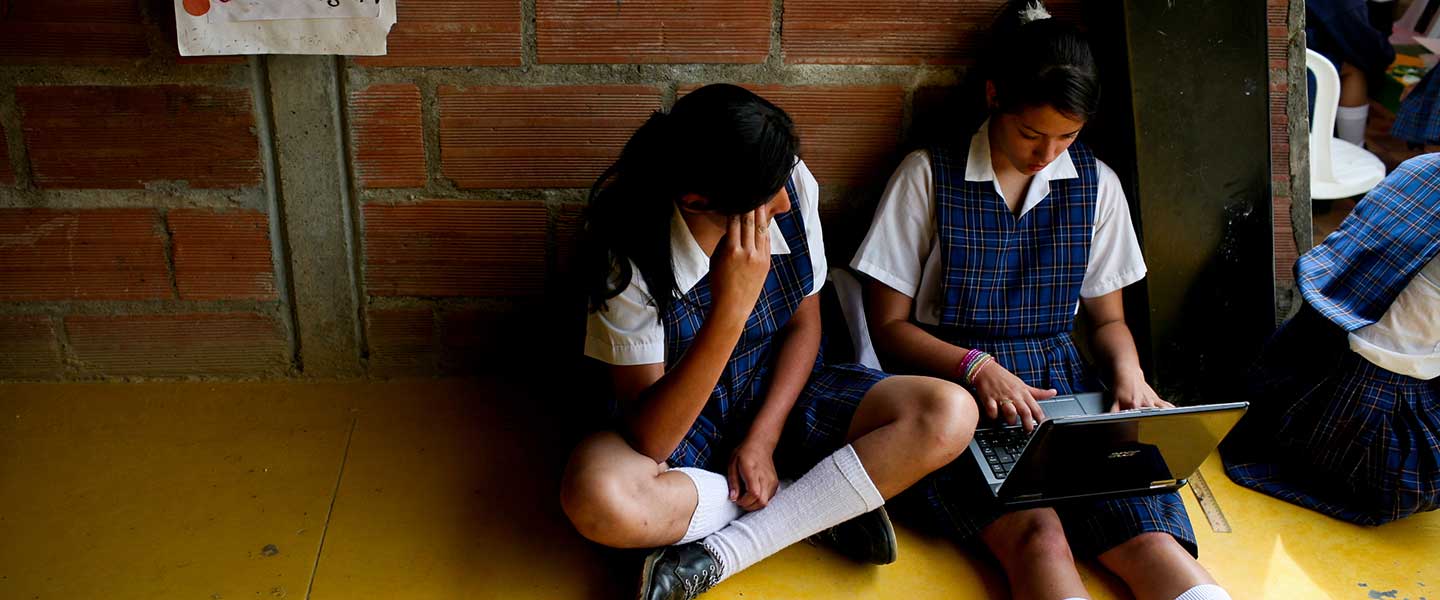
The World Bank Group is the largest financier of education in the developing world, working in 90 countries and committed to helping them reach SDG4: access to inclusive and equitable quality education and lifelong learning opportunities for all by 2030.
Education is a human right, a powerful driver of development, and one of the strongest instruments for reducing poverty and improving health, gender equality, peace, and stability. It delivers large, consistent returns in terms of income, and is the most important factor to ensure equity and inclusion.
For individuals, education promotes employment, earnings, health, and poverty reduction. Globally, there is a 9% increase in hourly earnings for every extra year of schooling . For societies, it drives long-term economic growth, spurs innovation, strengthens institutions, and fosters social cohesion. Education is further a powerful catalyst to climate action through widespread behavior change and skilling for green transitions.
Developing countries have made tremendous progress in getting children into the classroom and more children worldwide are now in school. But learning is not guaranteed, as the 2018 World Development Report (WDR) stressed.
Making smart and effective investments in people’s education is critical for developing the human capital that will end extreme poverty. At the core of this strategy is the need to tackle the learning crisis, put an end to Learning Poverty , and help youth acquire the advanced cognitive, socioemotional, technical and digital skills they need to succeed in today’s world.
In low- and middle-income countries, the share of children living in Learning Poverty (that is, the proportion of 10-year-old children that are unable to read and understand a short age-appropriate text) increased from 57% before the pandemic to an estimated 70% in 2022.
However, learning is in crisis. More than 70 million more people were pushed into poverty during the COVID pandemic, a billion children lost a year of school , and three years later the learning losses suffered have not been recouped . If a child cannot read with comprehension by age 10, they are unlikely to become fluent readers. They will fail to thrive later in school and will be unable to power their careers and economies once they leave school.
The effects of the pandemic are expected to be long-lasting. Analysis has already revealed deep losses, with international reading scores declining from 2016 to 2021 by more than a year of schooling. These losses may translate to a 0.68 percentage point in global GDP growth. The staggering effects of school closures reach beyond learning. This generation of children could lose a combined total of US$21 trillion in lifetime earnings in present value or the equivalent of 17% of today’s global GDP – a sharp rise from the 2021 estimate of a US$17 trillion loss.
Action is urgently needed now – business as usual will not suffice to heal the scars of the pandemic and will not accelerate progress enough to meet the ambitions of SDG 4. We are urging governments to implement ambitious and aggressive Learning Acceleration Programs to get children back to school, recover lost learning, and advance progress by building better, more equitable and resilient education systems.
Last Updated: Mar 25, 2024
The World Bank’s global education strategy is centered on ensuring learning happens – for everyone, everywhere. Our vision is to ensure that everyone can achieve her or his full potential with access to a quality education and lifelong learning. To reach this, we are helping countries build foundational skills like literacy, numeracy, and socioemotional skills – the building blocks for all other learning. From early childhood to tertiary education and beyond – we help children and youth acquire the skills they need to thrive in school, the labor market and throughout their lives.
Investing in the world’s most precious resource – people – is paramount to ending poverty on a livable planet. Our experience across more than 100 countries bears out this robust connection between human capital, quality of life, and economic growth: when countries strategically invest in people and the systems designed to protect and build human capital at scale, they unlock the wealth of nations and the potential of everyone.
Building on this, the World Bank supports resilient, equitable, and inclusive education systems that ensure learning happens for everyone. We do this by generating and disseminating evidence, ensuring alignment with policymaking processes, and bridging the gap between research and practice.
The World Bank is the largest source of external financing for education in developing countries, with a portfolio of about $26 billion in 94 countries including IBRD, IDA and Recipient-Executed Trust Funds. IDA operations comprise 62% of the education portfolio.
The investment in FCV settings has increased dramatically and now accounts for 26% of our portfolio.
World Bank projects reach at least 425 million students -one-third of students in low- and middle-income countries.
The World Bank’s Approach to Education
Five interrelated pillars of a well-functioning education system underpin the World Bank’s education policy approach:
- Learners are prepared and motivated to learn;
- Teachers are prepared, skilled, and motivated to facilitate learning and skills acquisition;
- Learning resources (including education technology) are available, relevant, and used to improve teaching and learning;
- Schools are safe and inclusive; and
- Education Systems are well-managed, with good implementation capacity and adequate financing.
The Bank is already helping governments design and implement cost-effective programs and tools to build these pillars.
Our Principles:
- We pursue systemic reform supported by political commitment to learning for all children.
- We focus on equity and inclusion through a progressive path toward achieving universal access to quality education, including children and young adults in fragile or conflict affected areas , those in marginalized and rural communities, girls and women , displaced populations, students with disabilities , and other vulnerable groups.
- We focus on results and use evidence to keep improving policy by using metrics to guide improvements.
- We want to ensure financial commitment commensurate with what is needed to provide basic services to all.
- We invest wisely in technology so that education systems embrace and learn to harness technology to support their learning objectives.
Laying the groundwork for the future
Country challenges vary, but there is a menu of options to build forward better, more resilient, and equitable education systems.
Countries are facing an education crisis that requires a two-pronged approach: first, supporting actions to recover lost time through remedial and accelerated learning; and, second, building on these investments for a more equitable, resilient, and effective system.
Recovering from the learning crisis must be a political priority, backed with adequate financing and the resolve to implement needed reforms. Domestic financing for education over the last two years has not kept pace with the need to recover and accelerate learning. Across low- and lower-middle-income countries, the average share of education in government budgets fell during the pandemic , and in 2022 it remained below 2019 levels.
The best chance for a better future is to invest in education and make sure each dollar is put toward improving learning. In a time of fiscal pressure, protecting spending that yields long-run gains – like spending on education – will maximize impact. We still need more and better funding for education. Closing the learning gap will require increasing the level, efficiency, and equity of education spending—spending smarter is an imperative.
- Education technology can be a powerful tool to implement these actions by supporting teachers, children, principals, and parents; expanding accessible digital learning platforms, including radio/ TV / Online learning resources; and using data to identify and help at-risk children, personalize learning, and improve service delivery.
Looking ahead
We must seize this opportunity to reimagine education in bold ways. Together, we can build forward better more equitable, effective, and resilient education systems for the world’s children and youth.
Accelerating Improvements
Supporting countries in establishing time-bound learning targets and a focused education investment plan, outlining actions and investments geared to achieve these goals.
Launched in 2020, the Accelerator Program works with a set of countries to channel investments in education and to learn from each other. The program coordinates efforts across partners to ensure that the countries in the program show improvements in foundational skills at scale over the next three to five years. These investment plans build on the collective work of multiple partners, and leverage the latest evidence on what works, and how best to plan for implementation. Countries such as Brazil (the state of Ceará) and Kenya have achieved dramatic reductions in learning poverty over the past decade at scale, providing useful lessons, even as they seek to build on their successes and address remaining and new challenges.
Universalizing Foundational Literacy
Readying children for the future by supporting acquisition of foundational skills – which are the gateway to other skills and subjects.
The Literacy Policy Package (LPP) consists of interventions focused specifically on promoting acquisition of reading proficiency in primary school. These include assuring political and technical commitment to making all children literate; ensuring effective literacy instruction by supporting teachers; providing quality, age-appropriate books; teaching children first in the language they speak and understand best; and fostering children’s oral language abilities and love of books and reading.
Advancing skills through TVET and Tertiary
Ensuring that individuals have access to quality education and training opportunities and supporting links to employment.
Tertiary education and skills systems are a driver of major development agendas, including human capital, climate change, youth and women’s empowerment, and jobs and economic transformation. A comprehensive skill set to succeed in the 21st century labor market consists of foundational and higher order skills, socio-emotional skills, specialized skills, and digital skills. Yet most countries continue to struggle in delivering on the promise of skills development.
The World Bank is supporting countries through efforts that address key challenges including improving access and completion, adaptability, quality, relevance, and efficiency of skills development programs. Our approach is via multiple channels including projects, global goods, as well as the Tertiary Education and Skills Program . Our recent reports including Building Better Formal TVET Systems and STEERing Tertiary Education provide a way forward for how to improve these critical systems.
Addressing Climate Change
Mainstreaming climate education and investing in green skills, research and innovation, and green infrastructure to spur climate action and foster better preparedness and resilience to climate shocks.
Our approach recognizes that education is critical for achieving effective, sustained climate action. At the same time, climate change is adversely impacting education outcomes. Investments in education can play a huge role in building climate resilience and advancing climate mitigation and adaptation. Climate change education gives young people greater awareness of climate risks and more access to tools and solutions for addressing these risks and managing related shocks. Technical and vocational education and training can also accelerate a green economic transformation by fostering green skills and innovation. Greening education infrastructure can help mitigate the impact of heat, pollution, and extreme weather on learning, while helping address climate change.
Examples of this work are projects in Nigeria (life skills training for adolescent girls), Vietnam (fostering relevant scientific research) , and Bangladesh (constructing and retrofitting schools to serve as cyclone shelters).
Strengthening Measurement Systems
Enabling countries to gather and evaluate information on learning and its drivers more efficiently and effectively.
The World Bank supports initiatives to help countries effectively build and strengthen their measurement systems to facilitate evidence-based decision-making. Examples of this work include:
(1) The Global Education Policy Dashboard (GEPD) : This tool offers a strong basis for identifying priorities for investment and policy reforms that are suited to each country context by focusing on the three dimensions of practices, policies, and politics.
- Highlights gaps between what the evidence suggests is effective in promoting learning and what is happening in practice in each system; and
- Allows governments to track progress as they act to close the gaps.
The GEPD has been implemented in 13 education systems already – Peru, Rwanda, Jordan, Ethiopia, Madagascar, Mozambique, Islamabad, Khyber Pakhtunkhwa, Sierra Leone, Niger, Gabon, Jordan and Chad – with more expected by the end of 2024.
(2) Learning Assessment Platform (LeAP) : LeAP is a one-stop shop for knowledge, capacity-building tools, support for policy dialogue, and technical staff expertise to support student achievement measurement and national assessments for better learning.
Supporting Successful Teachers
Helping systems develop the right selection, incentives, and support to the professional development of teachers.
Currently, the World Bank Education Global Practice has over 160 active projects supporting over 18 million teachers worldwide, about a third of the teacher population in low- and middle-income countries. In 12 countries alone, these projects cover 16 million teachers, including all primary school teachers in Ethiopia and Turkey, and over 80% in Bangladesh, Pakistan, and Vietnam.
A World Bank-developed classroom observation tool, Teach, was designed to capture the quality of teaching in low- and middle-income countries. It is now 3.6 million students.
While Teach helps identify patterns in teacher performance, Coach leverages these insights to support teachers to improve their teaching practice through hands-on in-service teacher professional development (TPD).
Our recent report on Making Teacher Policy Work proposes a practical framework to uncover the black box of effective teacher policy and discusses the factors that enable their scalability and sustainability.
Supporting Education Finance Systems
Strengthening country financing systems to mobilize resources for education and make better use of their investments in education.
Our approach is to bring together multi-sectoral expertise to engage with ministries of education and finance and other stakeholders to develop and implement effective and efficient public financial management systems; build capacity to monitor and evaluate education spending, identify financing bottlenecks, and develop interventions to strengthen financing systems; build the evidence base on global spending patterns and the magnitude and causes of spending inefficiencies; and develop diagnostic tools as public goods to support country efforts.
Working in Fragile, Conflict, and Violent (FCV) Contexts
The massive and growing global challenge of having so many children living in conflict and violent situations requires a response at the same scale and scope. Our education engagement in the Fragility, Conflict and Violence (FCV) context, which stands at US$5.35 billion, has grown rapidly in recent years, reflecting the ever-increasing importance of the FCV agenda in education. Indeed, these projects now account for more than 25% of the World Bank education portfolio.
Education is crucial to minimizing the effects of fragility and displacement on the welfare of youth and children in the short-term and preventing the emergence of violent conflict in the long-term.
Support to Countries Throughout the Education Cycle
Our support to countries covers the entire learning cycle, to help shape resilient, equitable, and inclusive education systems that ensure learning happens for everyone.
The ongoing Supporting Egypt Education Reform project , 2018-2025, supports transformational reforms of the Egyptian education system, by improving teaching and learning conditions in public schools. The World Bank has invested $500 million in the project focused on increasing access to quality kindergarten, enhancing the capacity of teachers and education leaders, developing a reliable student assessment system, and introducing the use of modern technology for teaching and learning. Specifically, the share of Egyptian 10-year-old students, who could read and comprehend at the global minimum proficiency level, increased to 45 percent in 2021.
In Nigeria , the $75 million Edo Basic Education Sector and Skills Transformation (EdoBESST) project, running from 2020-2024, is focused on improving teaching and learning in basic education. Under the project, which covers 97 percent of schools in the state, there is a strong focus on incorporating digital technologies for teachers. They were equipped with handheld tablets with structured lesson plans for their classes. Their coaches use classroom observation tools to provide individualized feedback. Teacher absence has reduced drastically because of the initiative. Over 16,000 teachers were trained through the project, and the introduction of technology has also benefited students.
Through the $235 million School Sector Development Program in Nepal (2017-2022), the number of children staying in school until Grade 12 nearly tripled, and the number of out-of-school children fell by almost seven percent. During the pandemic, innovative approaches were needed to continue education. Mobile phone penetration is high in the country. More than four in five households in Nepal have mobile phones. The project supported an educational service that made it possible for children with phones to connect to local radio that broadcast learning programs.
From 2017-2023, the $50 million Strengthening of State Universities in Chile project has made strides to improve quality and equity at state universities. The project helped reduce dropout: the third-year dropout rate fell by almost 10 percent from 2018-2022, keeping more students in school.
The World Bank’s first Program-for-Results financing in education was through a $202 million project in Tanzania , that ran from 2013-2021. The project linked funding to results and aimed to improve education quality. It helped build capacity, and enhanced effectiveness and efficiency in the education sector. Through the project, learning outcomes significantly improved alongside an unprecedented expansion of access to education for children in Tanzania. From 2013-2019, an additional 1.8 million students enrolled in primary schools. In 2019, the average reading speed for Grade 2 students rose to 22.3 words per minute, up from 17.3 in 2017. The project laid the foundation for the ongoing $500 million BOOST project , which supports over 12 million children to enroll early, develop strong foundational skills, and complete a quality education.
The $40 million Cambodia Secondary Education Improvement project , which ran from 2017-2022, focused on strengthening school-based management, upgrading teacher qualifications, and building classrooms in Cambodia, to improve learning outcomes, and reduce student dropout at the secondary school level. The project has directly benefited almost 70,000 students in 100 target schools, and approximately 2,000 teachers and 600 school administrators received training.
The World Bank is co-financing the $152.80 million Yemen Restoring Education and Learning Emergency project , running from 2020-2024, which is implemented through UNICEF, WFP, and Save the Children. It is helping to maintain access to basic education for many students, improve learning conditions in schools, and is working to strengthen overall education sector capacity. In the time of crisis, the project is supporting teacher payments and teacher training, school meals, school infrastructure development, and the distribution of learning materials and school supplies. To date, almost 600,000 students have benefited from these interventions.
The $87 million Providing an Education of Quality in Haiti project supported approximately 380 schools in the Southern region of Haiti from 2016-2023. Despite a highly challenging context of political instability and recurrent natural disasters, the project successfully supported access to education for students. The project provided textbooks, fresh meals, and teacher training support to 70,000 students, 3,000 teachers, and 300 school directors. It gave tuition waivers to 35,000 students in 118 non-public schools. The project also repaired 19 national schools damaged by the 2021 earthquake, which gave 5,500 students safe access to their schools again.
In 2013, just 5% of the poorest households in Uzbekistan had children enrolled in preschools. Thanks to the Improving Pre-Primary and General Secondary Education Project , by July 2019, around 100,000 children will have benefitted from the half-day program in 2,420 rural kindergartens, comprising around 49% of all preschool educational institutions, or over 90% of rural kindergartens in the country.
In addition to working closely with governments in our client countries, the World Bank also works at the global, regional, and local levels with a range of technical partners, including foundations, non-profit organizations, bilaterals, and other multilateral organizations. Some examples of our most recent global partnerships include:
UNICEF, UNESCO, FCDO, USAID, Bill & Melinda Gates Foundation: Coalition for Foundational Learning
The World Bank is working closely with UNICEF, UNESCO, FCDO, USAID, and the Bill & Melinda Gates Foundation as the Coalition for Foundational Learning to advocate and provide technical support to ensure foundational learning. The World Bank works with these partners to promote and endorse the Commitment to Action on Foundational Learning , a global network of countries committed to halving the global share of children unable to read and understand a simple text by age 10 by 2030.
Australian Aid, Bernard van Leer Foundation, Bill & Melinda Gates Foundation, Canada, Echida Giving, FCDO, German Cooperation, William & Flora Hewlett Foundation, Conrad Hilton Foundation, LEGO Foundation, Porticus, USAID: Early Learning Partnership
The Early Learning Partnership (ELP) is a multi-donor trust fund, housed at the World Bank. ELP leverages World Bank strengths—a global presence, access to policymakers and strong technical analysis—to improve early learning opportunities and outcomes for young children around the world.
We help World Bank teams and countries get the information they need to make the case to invest in Early Childhood Development (ECD), design effective policies and deliver impactful programs. At the country level, ELP grants provide teams with resources for early seed investments that can generate large financial commitments through World Bank finance and government resources. At the global level, ELP research and special initiatives work to fill knowledge gaps, build capacity and generate public goods.
UNESCO, UNICEF: Learning Data Compact
UNESCO, UNICEF, and the World Bank have joined forces to close the learning data gaps that still exist and that preclude many countries from monitoring the quality of their education systems and assessing if their students are learning. The three organizations have agreed to a Learning Data Compact , a commitment to ensure that all countries, especially low-income countries, have at least one quality measure of learning by 2025, supporting coordinated efforts to strengthen national assessment systems.
UNESCO Institute for Statistics (UIS): Learning Poverty Indicator
Aimed at measuring and urging attention to foundational literacy as a prerequisite to achieve SDG4, this partnership was launched in 2019 to help countries strengthen their learning assessment systems, better monitor what students are learning in internationally comparable ways and improve the breadth and quality of global data on education.
FCDO, Bill & Melinda Gates Foundation: EdTech Hub
Supported by the UK government’s Foreign, Commonwealth & Development Office (FCDO), in partnership with the Bill & Melinda Gates Foundation, the EdTech Hub is aimed at improving the quality of ed-tech investments. The Hub launched a rapid response Helpdesk service to provide just-in-time advisory support to 70 low- and middle-income countries planning education technology and remote learning initiatives.
MasterCard Foundation
Our Tertiary Education and Skills global program, launched with support from the Mastercard Foundation, aims to prepare youth and adults for the future of work and society by improving access to relevant, quality, equitable reskilling and post-secondary education opportunities. It is designed to reframe, reform, and rebuild tertiary education and skills systems for the digital and green transformation.
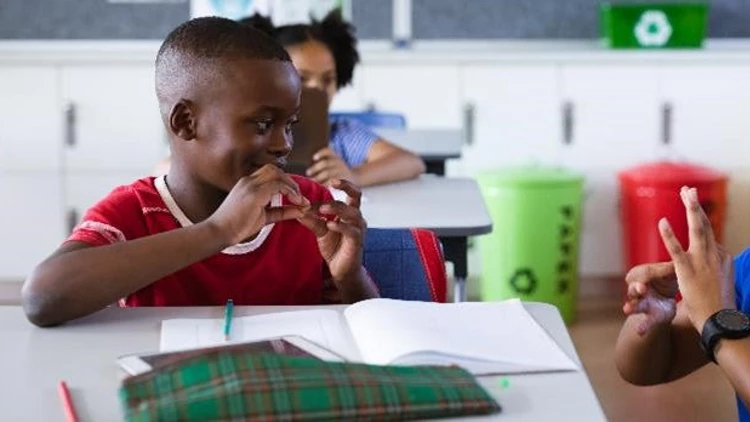
The “how to” of inclusive education policy design
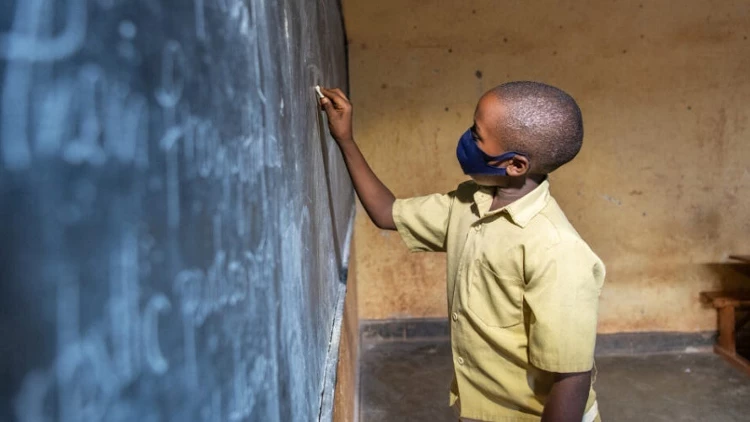
Including refugees in national education systems

How generative AI can enrich teaching and learning
Areas of focus.
Digital Technologies
Early Childhood Development
Education Data & Measurement
Education Finance
Education in Fragile, Conflict & Violence Contexts
Girls’ Education
Higher Education
Inclusive Education
Initiatives
- Show More +
- Tertiary Education and Skills Program
- Service Delivery Indicators
- Evoke: Transforming education to empower youth
- Global Education Policy Dashboard
- Global Education Evidence Advisory Panel
- Show Less -
Collapse and Recovery: How the COVID-19 Pandemic Eroded Human Capital and What to Do About It
BROCHURES & FACT SHEETS
Publication: Realizing Education's Promise: A World Bank Retrospective – August 2023
Education and Climate Change flyer - November 2022
Learning Losses Brochure - October 2022
World Bank Group Education Fact Sheet - September 2022
STAY CONNECTED
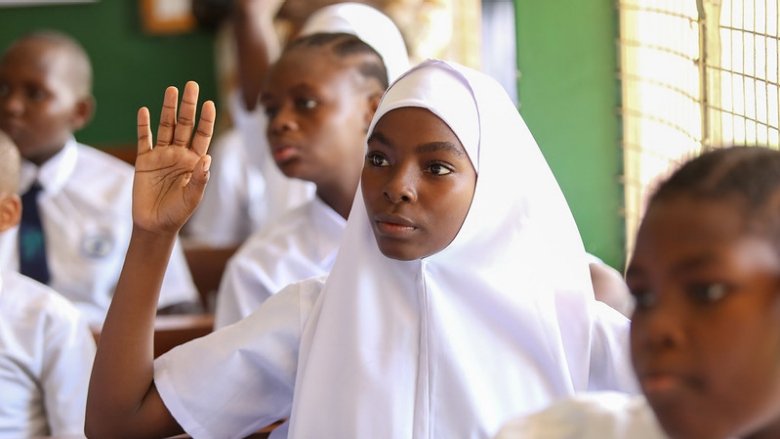
Human Development Topics
Around the bank group.
Find out what the Bank Group's branches are doing in education
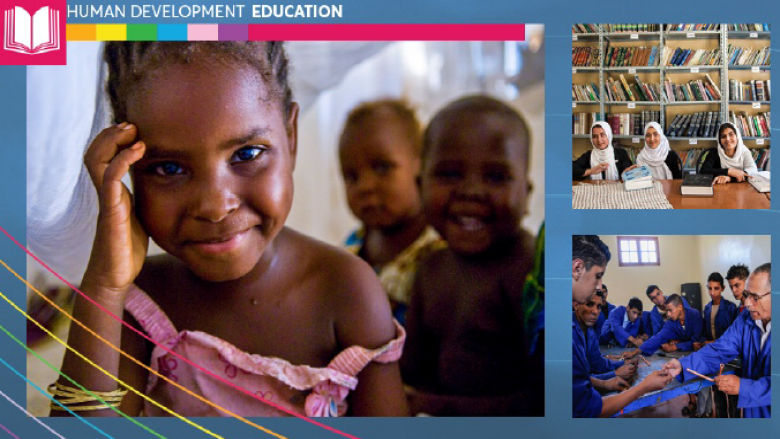
Global Education Newsletter - February 2024
What's happening in the World Bank Education Global Practice? Read to learn more.
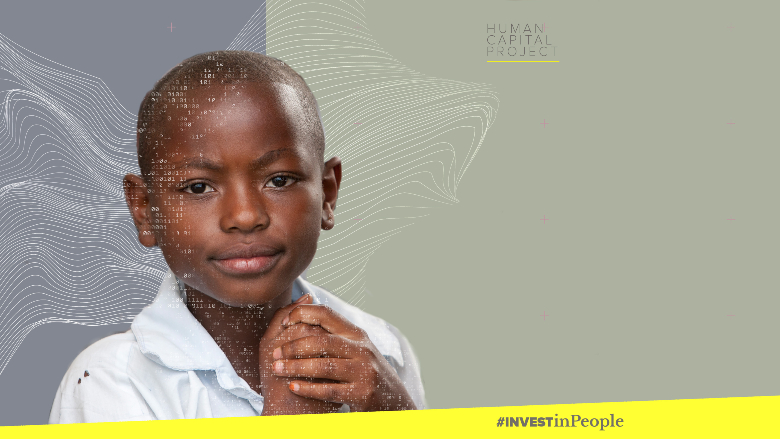
Human Capital Project
The Human Capital Project is a global effort to accelerate more and better investments in people for greater equity and economic growth.
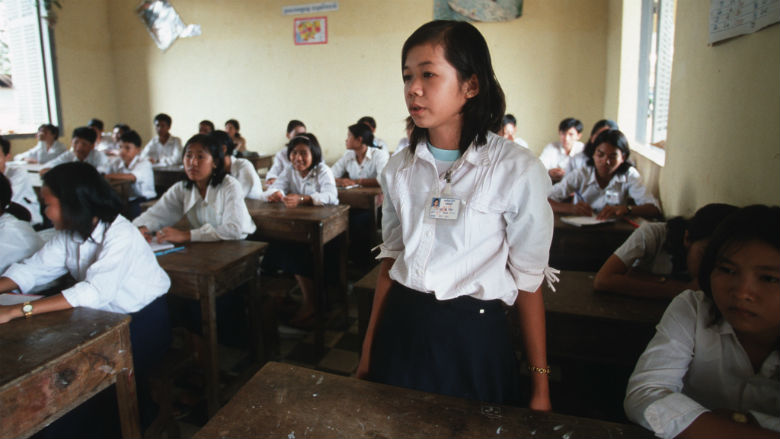
Impact Evaluations
Research that measures the impact of education policies to improve education in low and middle income countries.
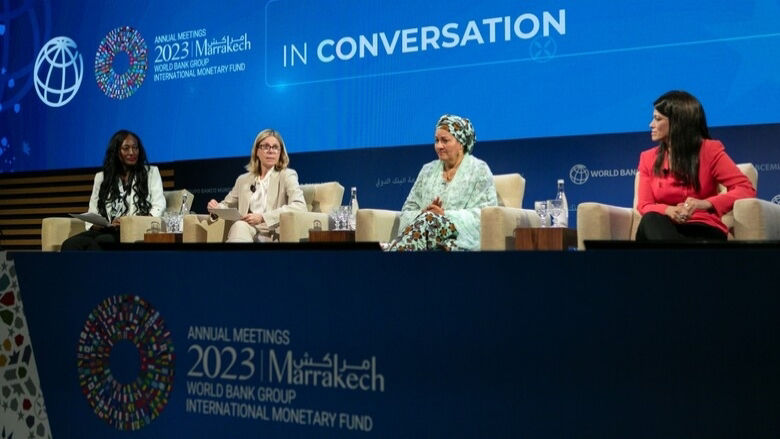
Investing in People for a Livable Planet
Global thought leaders came together to champion investments in people to eradicate poverty on a livable planet.
Additional Resources
This site uses cookies to optimize functionality and give you the best possible experience. If you continue to navigate this website beyond this page, cookies will be placed on your browser. To learn more about cookies, click here .
Main navigation
- Undergraduate
- Teacher Education
- Graduate Programs
- First Nations & Inuit
B.A.(Education); Major in Education in Global Contexts
- Education & Society - Non-Thesis - Math / Science - Project
- Foundation Course Options
- Prospective Students
- Newly Admitted
- Currently Registered
The B.A.(Education); Major in Education in Global Contexts is a 90 credit interdisciplinary program that focuses on understanding the role of education in addressing contemporary and emergent global challenges. Students will take the concepts of teaching and learning outside of the classroom environment, exploring subject areas in sociology, psychology, leadership studies, history, philosophy, and public policy. Students will benefit from examining the world through an international scope and learning to problem-solve using the foundation of educational principles and hands-on experiences through a semester-long internship. Designed for anyone who wishes to take on the role of educator in non-traditional contexts; in non-profit, government, business, and other career sectors.
Department and University Information
Department of integrated studies in education (dise).
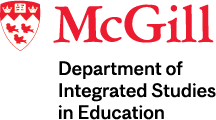
- Faculty Home Page
- Internships and Student Affairs
- Education Career Services
- Dept. of Kinesiology and Physical Education
- Dept. of Educational & Counselling Psychology
- Education Curriculum Resources Centre
- Education Computer Labs
- McGill eCalendar
- Student Services Directory
- IT Services
- Education Graduate Student Society (EGSS)
- Education Undergraduate Society (EdUS)
- Ministère éducation et enseignement supérieur
- Direction de la formation et de la titularisation du personnel scolaire
- Learn Quebec (Leading English Education and Resource Network)
- SPEAQ (Société pour la promotion de l'enseignement de l'anglais langue seconde au Québec)
- McGill Links
- Subject List
- Take a Tour
- For Authors
- Subscriber Services
- Publications
- African American Studies
- African Studies
- American Literature
- Anthropology
- Architecture Planning and Preservation
- Art History
- Atlantic History
- Biblical Studies
- British and Irish Literature
- Childhood Studies
- Chinese Studies
- Cinema and Media Studies
- Communication
- Criminology
- Environmental Science
- Evolutionary Biology
- International Law
- International Relations
- Islamic Studies
- Jewish Studies
- Latin American Studies
- Latino Studies
- Linguistics
- Literary and Critical Theory
- Medieval Studies
- Military History
- Political Science
- Public Health
- Renaissance and Reformation
- Social Work
- Urban Studies
- Victorian Literature
- Browse All Subjects
How to Subscribe
- Free Trials
In This Article Expand or collapse the "in this article" section Indigenous Education in a Global Context
Introduction, philosophy, theories, and research methodology.
- Government and Other Reports
- Traditional Education
- Curriculum and Instruction
- Students and Teachers
- Australia and New Zealand
- Latin America
- North America
Related Articles Expand or collapse the "related articles" section about
About related articles close popup.
Lorem Ipsum Sit Dolor Amet
Vestibulum ante ipsum primis in faucibus orci luctus et ultrices posuere cubilia Curae; Aliquam ligula odio, euismod ut aliquam et, vestibulum nec risus. Nulla viverra, arcu et iaculis consequat, justo diam ornare tellus, semper ultrices tellus nunc eu tellus.
- Alaska Native Education
- American Indian Education
- Bilingual Education and Bilingualism
- Culturally Responsive Leadership
- Culturally Responsive Pedagogies
- Education of Native Hawaiian Students
- Higher Education and the Developing World
- Indigenous Learning Environments
- Intersectionality and Education
- Native American Studies
Other Subject Areas
Forthcoming articles expand or collapse the "forthcoming articles" section.
- Gender, Power, and Politics in the Academy
- Girls' Education in the Developing World
- Non-Formal & Informal Environmental Education
- Find more forthcoming articles...
- Export Citations
- Share This Facebook LinkedIn Twitter
Indigenous Education in a Global Context by Jon Reyhner , Navin Kumar Singh LAST REVIEWED: 29 July 2020 LAST MODIFIED: 26 May 2021 DOI: 10.1093/obo/9780199756810-0064
The term “indigenous,” when used with education, is generally recognized to refer to the first inhabitants of an area that was later colonized by another, more powerful, group of people who then forced their language and culture on the original inhabitants. In Australia and Canada, the term “Aboriginal” is still used; in Canada, “First Nations” is also popular; and in the United States, “Native American,” “American Indian,” “Alaska Native,” and “Native Hawaiian” are used to describe the country’s indigenous peoples. However, the term “indigenous” is becoming more popular globally. The colonial approach to education is related to the anthropological concept of ethnocentrism, where each ethnic group tends to think itself superior to other groups, and which propels more powerful, dominant groups to subordinate or demand the cultural assimilation of less powerful groups they conquer and colonize. The subordinate, indigenous group can be expected to adopt the religion, language, and customs of the dominant group, and schools are used to promote this conversion. However, ethnic minorities often resist forced assimilation. Much of the recent history of indigenous education globally has involved the conflict between efforts at decolonization, which was exemplified by the United Nations’ adoption in 2007 of the Declaration on the Rights of Indigenous Peoples, and continued efforts to assimilate thousands of indigenous ethnic minority groups. The variety of these groups is indicated by the fact that it is estimated by linguists that there are over six thousand languages spoken across the globe today (though assimilationist education is lowering that number), and each language can represent a unique culture. Since European nations colonized much of the world in the last few centuries, they are usually the group imposing, through schools, their language and culture on indigenous peoples in Africa, the Americas, Asia, Australia, and the islands in the Pacific Ocean. However, China’s recent actions in Tibet also meet this definition, and the actions of Scandinavian countries in regard to the Sámi in their northern regions also qualify. The studies in this bibliography examine the educational issues worldwide that many indigenous people still face today as they attempt to hold on to their indigenous languages and cultures while seeking to reestablish self-government and gain economic success in an increasingly globalized and “flat” world.
Calls for decolonizing indigenous education are given impetus by the below-average academic performance and high dropout rates of indigenous students. In the past, nonindigenous peoples often attributed this poor performance to racial inferiority, but modern genetic testing shows that there are no genetic differences, beyond superficial ones like skin color, that can be used to separate the “races.” A second rationale for poor performance is “cultural deprivation,” which transfers indigenous inferiority from genetics to culture, and which characterizes indigenous cultures as less civilized. This rationale promotes assimilationist education so that schooling replaces the culture of the indigenous child with that of a dominant, often Euro-American, culture. The studies in the Histories section of this article document the failings of assimilationist education. Abidogun 2013 gives an overview of current thinking on indigenous education. The contributing authors to Ah Nee-Benham and Cooper 2000 examine the question of what philosophy should drive thinking about indigenous education, and Tuhiwai Smith 2012 examines how and by whom indigenous education should be researched. Huffman 2010 looks at recent research-based explanations for indigenous academic performance, starting with cultural discontinuity theory, where the culture of the teacher as well as the curriculum and instructional strategies used in schools may be in conflict with a child’s home culture. This explanation supports bilingual, bicultural education. Critical theorists maintain that indigenous children are provided an inferior education so that the dominant group can maintain its position of power and continue to exploit ethnic minorities as sources of cheap labor. A final explanation is found in poverty. This view holds that children of any “race” or ethnic group who live in poverty are denied the health care, nutrition, home literacy environment, and other factors they need for school success. Castagno and Brayboy 2008 provides an extensive review of research supporting the use of curriculum and instructional practices that build on the cultural and linguistic background of indigenous students. Many studies contrast “Western” linear thinking and knowledge with indigenous traditional circular and spiritual knowledge (e.g., Barnhardt and Kawagley 2005 ). Historically indigenous traditional knowledge has been devalued and ignored in schools in colonized lands. Deloria and Wildcat 2001 provides a strong argument for the continued importance of traditional Native values and ways of thinking for modern youth. Willeto 1999 , a study of Navajo youth, demonstrates that students do not have to lose their native language and culture to be more academically successful, as assimilationist ideology maintains. Cajete 2015 argues for recovering indigenous traditional knowledge to create a sustainable future.
Abidogun, Jamaine. 2013. Education. In Native peoples of the world: An encyclopedia of groups, cultures, and contemporary issues . Vol. 3. Edited by Steven Danver, 728–731. Armonk, NY: Sharpe Reference.
Overviews schooling as a method of colonial control, the impact of assimilation, indirect rule in some colonies, the past dismantling of indigenous education in some countries, and recent efforts at decolonization.
Ah Nee-Benham, Maenette Kape ʻahiokalani Padeken, and Joanne Elizabeth Cooper, eds. 2000. Indigenous education models for contemporary practice: In our mother’s voice . Mahwah, NJ: Lawrence Erlbaum.
Fourteen indigenous educators share their ideas about education and interdisciplinary learning opportunities that involve the physical environment and building global community—which includes Native history, culture, language, and art—and which “fosters self-respect; cultural respect; and productive school, family, and community relationships” (p. 11).
Barnhardt, Ray, and A. Oscar Kawagley. 2005. Indigenous knowledge systems and Alaska Native ways of knowing. Anthropology and Education Quarterly 36:8–23.
DOI: 10.1525/aeq.2005.36.1.008
Illuminates the processes of learning that occur at the intersection of diverse worldviews and knowledge systems, drawing on experiences of Alaska Native ways of observing and relating to the world.
Cajete, Gregory A. 2015. Indigenous community: Rekindling the teachings of the seventh fire . St. Paul, MN: Living Justice Press.
The ten chapters in this book describe community foundations of indigenous education, coming back from diaspora and loss of community, what is a healthy community, sustaining indigenous community, re-creating community leadership, and a vision of indigenous education. Cajete views Western ideas of development as not sustainable and not good indigenous communities.
Castagno, Angelina E., and Bryan McKinley Jones Brayboy. 2008. Culturally responsive schooling for indigenous youth: A review of the literature. Review of Educational Research 78:941–993.
DOI: 10.3102/0034654308323036
A comprehensive review of the literature on culture-based education that finds much support for it but too little implementation. The authors view recent educational reform efforts by the US federal government as hurting rather than helping improve indigenous education.
Deloria, Vine, Jr., and Daniel R. Wildcat. 2001. Power and place: Indian education in America . Golden, CO: Fulcrum Resources.
This collection of essays critiques the “Western worldview,” formal schooling as it is today, and modern American values generally. The authors argue for the strength of traditional indigenous/tribal values and a more holistic view of the world as a source of guidance to living a good life in the modern world.
Huffman, Terry. 2010. Theoretical perspectives on American Indian education: Taking a new look at academic success and the achievement gap . Lanham, MD: AltaMira.
Examines the cultural discontinuity, structural inequality, interactionalist, and transculturation theories that seek to explain the academic performance of indigenous students. The concluding chapter examines emerging decolonization theories, including tribal critical race theory.
Tuhiwai Smith, L. 2012. Decolonizing methodologies: Research and indigenous peoples . 2d ed. New York: Zed Books.
Challenges “Western” approaches to research and calls for a new “decolonizing” agenda for indigenous research that has a more critical understanding of indigenous “others,” who have often been contrasted with nonindigenous people rather than valued on their own terms. Chronicles the transition from “Maori as the researched” to “Maori as the researcher.”
Willeto, Angela A. 1999. Navajo culture and family influences on academic success: Traditionalism is not a significant predictor of achievement among young Navajos . Journal of American Indian Education 38.2: 1–21.
This study of 451 Navajo youth in eleven schools found that students who maintained their traditional language and culture were at least as successful in school as those who were more assimilated into the dominant English-speaking culture.
back to top
Users without a subscription are not able to see the full content on this page. Please subscribe or login .
Oxford Bibliographies Online is available by subscription and perpetual access to institutions. For more information or to contact an Oxford Sales Representative click here .
- About Education »
- Meet the Editorial Board »
- Academic Achievement
- Academic Audit for Universities
- Academic Freedom and Tenure in the United States
- Action Research in Education
- Adjuncts in Higher Education in the United States
- Administrator Preparation
- Adolescence
- Advanced Placement and International Baccalaureate Courses
- Advocacy and Activism in Early Childhood
- African American Racial Identity and Learning
- Alternative Certification Programs for Educators
- Alternative Schools
- Animals in Environmental Education
- Art Education
- Artificial Intelligence and Learning
- Assessing School Leader Effectiveness
- Assessment, Behavioral
- Assessment, Educational
- Assessment in Early Childhood Education
- Assistive Technology
- Augmented Reality in Education
- Beginning-Teacher Induction
- Black Undergraduate Women: Critical Race and Gender Perspe...
- Blended Learning
- Case Study in Education Research
- Changing Professional and Academic Identities
- Character Education
- Children’s and Young Adult Literature
- Children's Beliefs about Intelligence
- Children's Rights in Early Childhood Education
- Citizenship Education
- Civic and Social Engagement of Higher Education
- Classroom Learning Environments: Assessing and Investigati...
- Classroom Management
- Coherent Instructional Systems at the School and School Sy...
- College Admissions in the United States
- College Athletics in the United States
- Community Relations
- Comparative Education
- Computer-Assisted Language Learning
- Computer-Based Testing
- Conceptualizing, Measuring, and Evaluating Improvement Net...
- Continuous Improvement and "High Leverage" Educational Pro...
- Counseling in Schools
- Critical Approaches to Gender in Higher Education
- Critical Perspectives on Educational Innovation and Improv...
- Critical Race Theory
- Crossborder and Transnational Higher Education
- Cross-National Research on Continuous Improvement
- Cross-Sector Research on Continuous Learning and Improveme...
- Cultural Diversity in Early Childhood Education
- Culturally Responsive Teacher Education in the United Stat...
- Curriculum Design
- Data Collection in Educational Research
- Data-driven Decision Making in the United States
- Deaf Education
- Desegregation and Integration
- Design Thinking and the Learning Sciences: Theoretical, Pr...
- Development, Moral
- Dialogic Pedagogy
- Digital Age Teacher, The
- Digital Citizenship
- Digital Divides
- Disabilities
- Distance Learning
- Distributed Leadership
- Doctoral Education and Training
- Early Childhood Education and Care (ECEC) in Denmark
- Early Childhood Education and Development in Mexico
- Early Childhood Education in Aotearoa New Zealand
- Early Childhood Education in Australia
- Early Childhood Education in China
- Early Childhood Education in Europe
- Early Childhood Education in Sub-Saharan Africa
- Early Childhood Education in Sweden
- Early Childhood Education Pedagogy
- Early Childhood Education Policy
- Early Childhood Education, The Arts in
- Early Childhood Mathematics
- Early Childhood Science
- Early Childhood Teacher Education
- Early Childhood Teachers in Aotearoa New Zealand
- Early Years Professionalism and Professionalization Polici...
- Economics of Education
- Education For Children with Autism
- Education for Sustainable Development
- Education Leadership, Empirical Perspectives in
- Education Reform and School Change
- Educational Statistics for Longitudinal Research
- Educator Partnerships with Parents and Families with a Foc...
- Emotional and Affective Issues in Environmental and Sustai...
- Emotional and Behavioral Disorders
- Environmental and Science Education: Overlaps and Issues
- Environmental Education
- Environmental Education in Brazil
- Epistemic Beliefs
- Equity and Improvement: Engaging Communities in Educationa...
- Equity, Ethnicity, Diversity, and Excellence in Education
- Ethical Research with Young Children
- Ethics and Education
- Ethics of Teaching
- Ethnic Studies
- Evidence-Based Communication Assessment and Intervention
- Family and Community Partnerships in Education
- Family Day Care
- Federal Government Programs and Issues
- Feminization of Labor in Academia
- Finance, Education
- Financial Aid
- Formative Assessment
- Future-Focused Education
- Gender and Achievement
- Gender and Alternative Education
- Gender-Based Violence on University Campuses
- Gifted Education
- Global Mindedness and Global Citizenship Education
- Global University Rankings
- Governance, Education
- Grounded Theory
- Growth of Effective Mental Health Services in Schools in t...
- Higher Education and Globalization
- Higher Education Faculty Characteristics and Trends in the...
- Higher Education Finance
- Higher Education Governance
- Higher Education Graduate Outcomes and Destinations
- Higher Education in Africa
- Higher Education in China
- Higher Education in Latin America
- Higher Education in the United States, Historical Evolutio...
- Higher Education, International Issues in
- Higher Education Management
- Higher Education Policy
- Higher Education Research
- Higher Education Student Assessment
- High-stakes Testing
- History of Early Childhood Education in the United States
- History of Education in the United States
- History of Technology Integration in Education
- Homeschooling
- Inclusion in Early Childhood: Difference, Disability, and ...
- Inclusive Education
- Indigenous Education in a Global Context
- Indigenous Students in Higher Education in the United Stat...
- Infant and Toddler Pedagogy
- Inservice Teacher Education
- Integrating Art across the Curriculum
- Intelligence
- Intensive Interventions for Children and Adolescents with ...
- International Perspectives on Academic Freedom
- Knowledge Development in Early Childhood
- Leadership Development, Coaching and Feedback for
- Leadership in Early Childhood Education
- Leadership Training with an Emphasis on the United States
- Learning Analytics in Higher Education
- Learning Difficulties
- Learning, Lifelong
- Learning, Multimedia
- Learning Strategies
- Legal Matters and Education Law
- LGBT Youth in Schools
- Linguistic Diversity
- Linguistically Inclusive Pedagogy
- Literacy Development and Language Acquisition
- Literature Reviews
- Mathematics Identity
- Mathematics Instruction and Interventions for Students wit...
- Mathematics Teacher Education
- Measurement for Improvement in Education
- Measurement in Education in the United States
- Meta-Analysis and Research Synthesis in Education
- Methodological Approaches for Impact Evaluation in Educati...
- Methodologies for Conducting Education Research
- Mindfulness, Learning, and Education
- Mixed Methods Research
- Motherscholars
- Multiliteracies in Early Childhood Education
- Multiple Documents Literacy: Theory, Research, and Applica...
- Multivariate Research Methodology
- Museums, Education, and Curriculum
- Music Education
- Narrative Research in Education
- Note-Taking
- Numeracy Education
- One-to-One Technology in the K-12 Classroom
- Online Education
- Open Education
- Organizing for Continuous Improvement in Education
- Organizing Schools for the Inclusion of Students with Disa...
- Outdoor Play and Learning
- Outdoor Play and Learning in Early Childhood Education
- Pedagogical Leadership
- Pedagogy of Teacher Education, A
- Performance Objectives and Measurement
- Performance-based Research Assessment in Higher Education
- Performance-based Research Funding
- Phenomenology in Educational Research
- Philosophy of Education
- Physical Education
- Podcasts in Education
- Policy Context of United States Educational Innovation and...
- Politics of Education
- Portable Technology Use in Special Education Programs and ...
- Post-humanism and Environmental Education
- Pre-Service Teacher Education
- Problem Solving
- Productivity and Higher Education
- Professional Development
- Professional Learning Communities
- Program Evaluation
- Programs and Services for Students with Emotional or Behav...
- Psychology Learning and Teaching
- Psychometric Issues in the Assessment of English Language ...
- Qualitative Data Analysis Techniques
- Qualitative, Quantitative, and Mixed Methods Research Samp...
- Qualitative Research Design
- Quantitative Research Designs in Educational Research
- Queering the English Language Arts (ELA) Writing Classroom
- Race and Affirmative Action in Higher Education
- Reading Education
- Refugee and New Immigrant Learners
- Relational and Developmental Trauma and Schools
- Relational Pedagogies in Early Childhood Education
- Reliability in Educational Assessments
- Religion in Elementary and Secondary Education in the Unit...
- Researcher Development and Skills Training within the Cont...
- Research-Practice Partnerships in Education within the Uni...
- Response to Intervention
- Restorative Practices
- Risky Play in Early Childhood Education
- Scale and Sustainability of Education Innovation and Impro...
- Scaling Up Research-based Educational Practices
- School Accreditation
- School Choice
- School Culture
- School District Budgeting and Financial Management in the ...
- School Improvement through Inclusive Education
- School Reform
- Schools, Private and Independent
- School-Wide Positive Behavior Support
- Science Education
- Secondary to Postsecondary Transition Issues
- Self-Regulated Learning
- Self-Study of Teacher Education Practices
- Service-Learning
- Severe Disabilities
- Single Salary Schedule
- Single-sex Education
- Single-Subject Research Design
- Social Context of Education
- Social Justice
- Social Network Analysis
- Social Pedagogy
- Social Science and Education Research
- Social Studies Education
- Sociology of Education
- Standards-Based Education
- Statistical Assumptions
- Student Access, Equity, and Diversity in Higher Education
- Student Assignment Policy
- Student Engagement in Tertiary Education
- Student Learning, Development, Engagement, and Motivation ...
- Student Participation
- Student Voice in Teacher Development
- Sustainability Education in Early Childhood Education
- Sustainability in Early Childhood Education
- Sustainability in Higher Education
- Teacher Beliefs and Epistemologies
- Teacher Collaboration in School Improvement
- Teacher Evaluation and Teacher Effectiveness
- Teacher Preparation
- Teacher Training and Development
- Teacher Unions and Associations
- Teacher-Student Relationships
- Teaching Critical Thinking
- Technologies, Teaching, and Learning in Higher Education
- Technology Education in Early Childhood
- Technology, Educational
- Technology-based Assessment
- The Bologna Process
- The Regulation of Standards in Higher Education
- Theories of Educational Leadership
- Three Conceptions of Literacy: Media, Narrative, and Gamin...
- Tracking and Detracking
- Traditions of Quality Improvement in Education
- Transformative Learning
- Transitions in Early Childhood Education
- Tribally Controlled Colleges and Universities in the Unite...
- Understanding the Psycho-Social Dimensions of Schools and ...
- University Faculty Roles and Responsibilities in the Unite...
- Using Ethnography in Educational Research
- Value of Higher Education for Students and Other Stakehold...
- Virtual Learning Environments
- Vocational and Technical Education
- Wellness and Well-Being in Education
- Women's and Gender Studies
- Young Children and Spirituality
- Young Children's Learning Dispositions
- Young Children's Working Theories
- Privacy Policy
- Cookie Policy
- Legal Notice
- Accessibility
Powered by:
- [66.249.64.20|81.177.182.136]
- 81.177.182.136
College of Education
- Our Mission & Vision
- Leading with Passion
- Culture & Community
- Commitment to Equity and Justice
- Great Minds Think Illinois
- The Research One Advantage
- News, Events & Announcements
- Impact Report
- Alumni and Advancement
- College of Education Bylaws
- Undergraduate Programs
- Graduate Programs
- Online Programs
- Principal & Superintendent Endorsements and Degrees
- International Programs
- Course Finder
- Program Finder
- Faculty Research Sites
- Public Engagement
- Dean's Distinguished Speaker Series
- Bureau of Educational Research
- Faculty Directory
- Curriculum & Instruction
- Education Policy, Organization & Leadership
- Educational Psychology
- Special Education
- Find Emeritus
- Find Graduate Students
- New Faculty 2023-24
- Undergraduate Students
- Graduate Students
- Online Students
- School and Community Experiences
- 2024 Convocation
Worldly Education: Learning to Teach in a Global Context
by Tom Hanlon / Jan 26, 2021
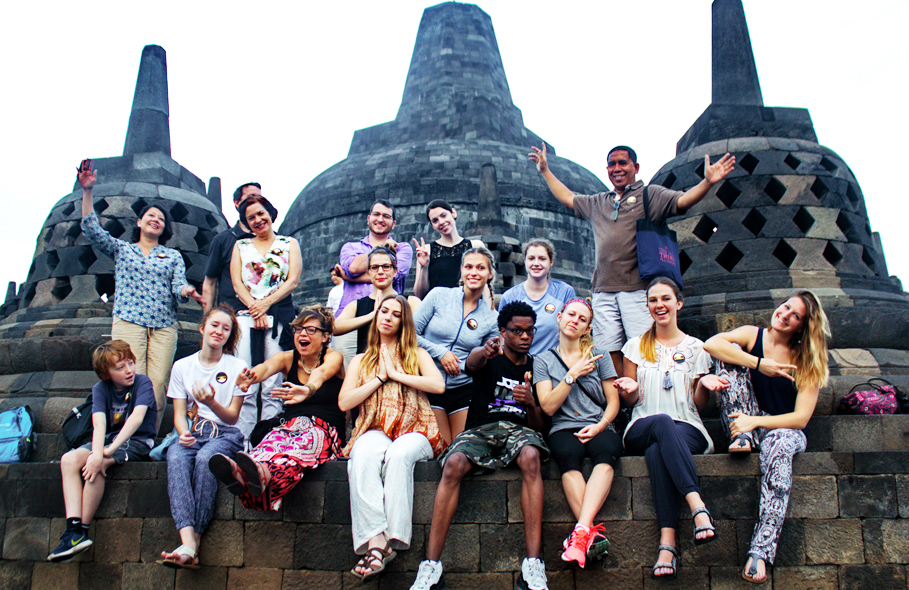
The power of teacher education is amplified when it is learned in a global context. Through International Programs at the University of Illinois, pre-service teachers gain teacher training and experience abroad so they can teach students how to function in a global context—which is a huge advantage for students today.
When Allison Witt first came on board in 2015 as director of the Office of International Programs for the College of Education, she thought her main duties would be taking care of the international students who were coming to the College to study.
After all, most of the domestic students were preparing to become teachers in Illinois. What good would studying abroad do them? Students from engineering and business and other schools went abroad—not pre-service teachers.
Mary Kalantzis , dean of the College at the time, had other ideas. “Mary told me ‘you need to get every single student to study abroad,’” Witt says. “’We need to drastically change what it means to be in education. It needs to be a global profession.’”
Witt quickly became convinced that Kalantzis was right, even though studying abroad was far from standard practice for pre-service teachers at the time, either at the University of Illinois or elsewhere. The College was sending about 20 students abroad when Witt took over the program; now they are sending upwards of 150.
“What happened was, the world changed,” Witt says. “It became more global, and the people in education realized it.”
The Power of International Education
Witt is passionate about the need for global studies. “While the US leads the world in higher education, we’re not there at K-12,” she says. “There are places that are lot higher ranked than the US, and our teachers need to go and learn from those teachers, and then come back and adapt what they learned to a US context. We need to expose our students to the best cutting-edge practices in education worldwide.”
And Witt truly means worldwide. “There’s essentially no place we won’t go,” she says. “There are good teachers everywhere.” Through the program, students have traveled to Morocco, Spain, France, Costa Rica, Italy, Indonesia, Greece, Ireland, Singapore, Tanzania, Namibia, and England. All placements are done with the idea of exposing the student to new ideas, practices, and cultures that will expand their abilities to teach once they return to Illinois.
“We have more destinations than anyone else, from what we can tell,” Witt says. “Part of that is because of the strength of our alumni. We have alumni all over the world, and that allows us to quickly form partnerships. When you have teachers in the schools or running the schools or running the ministry of education, it makes it a lot easier to establish partnerships.”
Witt sees a larger reason for international education, one beyond preparing students to teach in a global context. “For our very survival, we’re going to have to learn to work together,” she says. “Our planet has been screaming this at us for a while, and we kept ignoring it. This is the next way we are being told you have to play nice together, you have to collaborate. We’re not going to survive as a species if we’re not going to talk together, learn together, and work together.”
One of the great lessons of international education, Witt says, is embracing differences. “We begin to see difference as normal, and, in fact, exciting and interesting and important, rather than scary and threatening,” she says. “That’s really the promise of International Programs.”
The Scope of International Programs
International Programs , of course, is not just about sending domestic students abroad. It’s about hosting international students who come to the College to learn from faculty who are undertaking groundbreaking research. The College is home to students from nearly 40 countries around the world, and hosts visiting scholars, weekly Global Cafés, and an annual Global Education Symposium.
The number of international students is greater at the graduate level, but that is shifting, Witt says. “So much of what we do at the undergraduate level is training teachers for Illinois licensure programs, so those programs are not as attractive on a global scale,” she explains. “But we recently added the Learning Education Studies degree, and that is attracting more international students.”
The Secret to the Program’s Study Abroad Success
Study abroad for students in the College of Education is not the typical study abroad experience. “We take our teacher training model and put it in a global context,” Witt says. “Our students don’t just study abroad; they do teacher training abroad, and that’s different.”
The College is trying to deeply embed the study abroad experience into its pre-service curriculum. “And that’s unique,” Witt says. “A lot of campuses offer study abroad, but it’s not built to be specific to education the way ours is. That’s the secret to our success, to follow the practices that are part of teacher education.”
In the study abroad program, practicing teachers often accompany pre-service teachers, “because that’s how our students learn to become teachers,” Witt says. “They go to classrooms and they observe and talk to the teachers there, and learn to become teachers. We’ve taken that model and moved it out from the local community to the global community.”
Witt sees International Programs as serving a mission that extends beyond the College’s mission. “This is a very global campus, and we need to be a part of that,” she says. “In terms of our land grant mission to serve the local community, this is exactly how we should be doing that, because we need to train teachers who can then train the local community how to function in a global context.”

- © 2016
ICT in Education in Global Context
The Best Practices in K-12 Schools
- Jinbao Zhang 0 ,
- Junfeng Yang 1 ,
- Maiga Chang 2 ,
- Tingwen Chang 3
Educational Technology School, Beijing Normal University, Beijing, China
You can also search for this editor in PubMed Google Scholar
Education School, Hangzhou Normal University, Hangzhou, China
School of Computing&Information Systems, Athabasca University, Edmonton, Canada
Smart Learning Institute, Beijing Normal University, Beijing, China
- Provides essential information on integrating ICT in teaching
- Highlights the most successful cases in different regions all over the world
- Demonstrates how cutting-edge technologies can be used to scale up educational innovation
- Includes supplementary material: sn.pub/extras
Part of the book series: Lecture Notes in Educational Technology (LNET)
22k Accesses
36 Citations
1 Altmetric
- Table of contents
About this book
Editors and affiliations, about the editors, bibliographic information.
- Publish with us
Buying options
- Available as EPUB and PDF
- Read on any device
- Instant download
- Own it forever
- Compact, lightweight edition
- Dispatched in 3 to 5 business days
- Free shipping worldwide - see info
- Durable hardcover edition
Tax calculation will be finalised at checkout
Other ways to access
This is a preview of subscription content, log in via an institution to check for access.
Table of contents (15 chapters)
Front matter, towards a critical understanding to the best practices of ict in k-12 education in global context.
- Jinbao Zhang, Junfeng Yang, Maiga Chang, Tingwen Chang
How Teachers and Students Depict Interactive Whiteboards and Tablet PCs in a 9th Grade Classroom?
- Petek Aşkar, Arif Altun, Nurettin Şimşek, Selçuk Özdemir
A Qualitative Case Study of Tablet Use in a High School in Turkey
- Sadegül Akbaba Altun, Hale Ilgaz
Teaching and Learning Effectiveness Enhancement Project “TLEEP”
- Riadh Besbes

Learning Effectiveness Enhancement Project “LEEP”
Teaching effectiveness enhancement project “teep”, are teachers ready for new digital learning spaces: case study of an online social networking site for secondary teachers in trinidad and tobago.
- Vimala Judy Kamalodeen
Information Communication Technologies in Education for Developing Countries
- Zehra Altinay, Betul Yikici, Gulyuz Debes, Yusuf Deviren, Fahriye Altinay
An Italian Pilot Experience in Game Making for Learning
- Jeffrey Earp, Francesca Maria Dagnino, Ilaria Caponetto
Frog Virtual Learning Environment for Malaysian Schools: Exploring Teachers’ Experience
- Mei Lick Cheok, Su Luan Wong
Building a Smart Classroom—A Case Study of Spreading Inquiry-Based Nature Science Courses for Elementary School in Taiwan
- Hsien-Sheng Hsiao, Jyun-Chen Chen, Tzu-Chien Liu
How to Improve K12 Teachers’ ICT Competence in Finland: The Joensuu Region Case
- Mari Petrelius, Mikko-Jussi Laakso, Ilkka Jormanainen, Erkki Sutinen
Using Learning Technologies to Enhance Numeracy Competence in Rural Public Schools
- Imran A. Zualkernan, Asad Karim
Synchronous Remote Classroom Connecting K-12 Schools in Developed and Undeveloped Areas: A Case Study from China
- Liang Yu, Shijian Chen
Developing, Sharing, and Using of Micro-lectures in Region: Implications Derived from a Government-Oriented Micro-lecture Project in Shanghai
- Yongbin Hu, Jinbao Zhang, Ronghuai Huang
- ICT in Education
- Educational Technology
- Virtual Learning
- Digital Learning
- Game-based Learning
- Cyber Classroom
- Micro-course
- Smart Classroom
- ICT Case Study
- learning and instruction
Jinbao Zhang
Junfeng Yang
School of Computing&Information Systems, Athabasca University, Edmonton, Canada
Maiga Chang
Tingwen Chang
Book Title : ICT in Education in Global Context
Book Subtitle : The Best Practices in K-12 Schools
Editors : Jinbao Zhang, Junfeng Yang, Maiga Chang, Tingwen Chang
Series Title : Lecture Notes in Educational Technology
DOI : https://doi.org/10.1007/978-981-10-0373-8
Publisher : Springer Singapore
eBook Packages : Education , Education (R0)
Copyright Information : Springer Science+Business Media Singapore 2016
Hardcover ISBN : 978-981-10-0372-1 Published: 20 February 2016
Softcover ISBN : 978-981-10-9145-2 Published: 31 March 2018
eBook ISBN : 978-981-10-0373-8 Published: 19 February 2016
Series ISSN : 2196-4963
Series E-ISSN : 2196-4971
Edition Number : 1
Number of Pages : X, 302
Number of Illustrations : 5 b/w illustrations, 60 illustrations in colour
Topics : Educational Technology , Computers and Education , Early Childhood Education , Learning & Instruction
Policies and ethics
- Find a journal
- Track your research
News & Events
Instructor & Staff Resources
Work With Us

Faculty of Education
- Graduate Studies
- Masters Programs
MEd in Teaching Languages in Global Contexts
- Experience Education
- Student Experience
- Information Sessions
- Useful Guides, Links & Forms
- Financial Resources
- Student Association
- Friends of Simon
- Due Process and Withdrawals
- Policy Regarding Program Interruption
- Re-Entry and Re-Admission
- Private Awards & Scholarships
- Emily Longworth Memorial Award
- Reneeka Gill Award
- Professional Diplomas Students
- Upcoming Thesis Examination
- Course Outlines
- Work & Professional Development
- Programs of Study
- Application & Tuition
- Counselling and Human Development Minor
- Curriculum and Instruction Minor
- Early Learning Minor
- Educational Psychology Minor
- Learning and Developmental Disabilities Minor
- Social Justice in Education Minor
- Elementary Generalist Minor
- Environmental Education Minor
- French Education Minor
- Physical and Health Education Minor
- Secondary Mathematics Education Minor
- Secondary Teaching Minor
- French and Education Certificate
- Professional Practices Certificate
- Foundations of Academic Literacy
- Post Application
- Professional Qualification Program
- Demande d’admission et frais de scolarité
- Post-candidature
- Formation DUALE
- Join Our Interest List
- Counselling and Human Development (PBD)
- Early Learning (PBD)
- Environmental Education (PBD)
- Education (General) (PBD)
- French and Education (PBD)
- Special Education (PBD)
- Arts Education
- Counselling Psychology
- Curriculum and Instruction
- Educational Leadership
- Educational Psychology
- Educational Technology & Learning Design
- Equity Studies in Education
- Languages, Cultures & Literacies
- Mathematics Education
- Programs in French
- Themes in Community
- Program Comparision
- Faculty Directory
- Indigenous Education
- Indigenous Programs & Courses
- Supporting Aboriginal Graduate Enhancements (SAGE)
- Welcome to the Indigenous Education and Reconciliation Council (IERC)
- Indigenous Education & Research
- Explore Community
- Professional Learning Series
- International Student Resources
- SFU Surrey Community Counselling
- Cmolik Prize for the Enhancement of Public Education in BC
- Office of the Dean
- Support Students
- Support Research
- Support Communities
- Impact of your gift
- Submission Process
- 2019 Final Results
- 2017 Final Results
- 2016 Final Results
- 2015 Final Results
- Tech Support
- Room Bookings
- Visiting Scholars
- Visiting Faculty
- Adjunct Professors
- Redeem Tuition Fee Credits (TFCS)
- Faculty Associates
- GDE Mentors
- General Inquiries & Offices
- Undergraduate Studies
- Professional Diplomas
- Teacher Education

Master of Education
Application & Tuition
Graduate students from around the world are provided with an exciting learning opportunity focused on language education and the globalized contexts of teaching additional languages.
On This Page ↓
Program Overview Program Design & Courses Location Faculty Future Pathways Information Sessions Contact
PROGRAM OVERVIEW
Designed for.
The program is intended primarily, but not exclusively for international students with an interest in teaching additional languages. However, students may come from a range of educational backgrounds and from different regions of the world who may or may not have prior experience teaching additional languages.
Program Structure
- Full-time, 16 month, 40 unit program
- In-person classes typically held at the Burnaby campus
- Introductory course (EDUC 835) covers educational topics and focuses on academic literacy and cultural adaptation to Canada
- Cultural and academic advising and support available to students throughout the program
Intake Schedule
This program typically accepts applications on an annual basis.
Next Start Terms Fall 2023 (applications closed) Fall 2024
PROGRAM DESIGN & COURSES
Program design.
Designed with international students in mind, this program features a highly personalized graduate education experience (including academic and cultural support) and a strong learning community. Our cohort-based model allows students to work through the program and coursework together (18-24 students).
This full-time intensive program combines the theory of teaching and learning languages in a globalized world with a practical component of fieldwork (observations of teaching). During two fieldwork courses students observe teaching and learning in diverse Canadian classrooms at different levels. Although some teaching (mini-lessons) may be available during fieldwork, the intention of these experiences is to provide MEd students opportunities to explore various inquiry questions regarding language education in a variety of B.C. classroom contexts. While fieldwork courses enhance understandings of teaching and learning languages, they are not considered practicum experiences.
The Teaching Languages in Global Contexts MEd does not lead to teacher certification.
Program Advantages
Simon Fraser University has an outstanding academic reputation. Over the past decade, we have consistently been ranked among Canada’s top comprehensive universities. We have three campuses in the Metro Vancouver area, serving over 35,000 students.
Located in the province of British Columbia, we enjoy one of the most favourable climates in Canada. Metro Vancouver, with a population of more than 2 million, is home to a diverse community of people who have settled here from all over the world.
The Faculty of Education provides particular support for MEd international students in the Teaching Languages in Global Context MEd:
- Cultural assistant to ease the transition to life in B.C.
- A dedicated pre-admission advisor working with the faculty coordinator to support potential applicants in assessing the relevance of the program for their educational goals.
- A Faculty Coordinator available for academic advising
- An academic literacy support person to help with the demands of reading and writing at the graduate level.
Students complete:
EDUC 835 GRADUATE STUDY IN SECOND LANGUAGE EDUCATION
Educational topics and academic and cultural adaptation to graduate study in Canada. Explores key questions in contemporary educational discourses, issues of culture, language and identity, and develops advanced academic literacy through intensive reading and writing.
EDUC 710 SPECIAL TOPICS: APPROACHES AND ISSUES IN SECOND LANGUAGE INSTRUCTION
Variable units: 3, 4, 5.
The purpose of this course is to provide an opportunity to explore major trends and issues in second/foreign/additional language education theory and practice. Through readings, class discussions and presentations, the focus is on current understandings of different aspects of second language instruction and debatable issues prominent in language teaching research. Students will consider these questions in relation to educational contexts they are familiar with and additional languages they teach or intend to teach.
EDUC 811 FIELDWORK I (OBSERVATIONS IN CANADIAN CLASSROOMS)
Graded on a satisfactory/unsatisfactory basis.
This course is intended for students admitted in the MEd in Teaching Languages in Global Contexts Program. The purpose of the course is to explore teaching and learning from a variety of perspectives and develop inquiry skills related to topics of interest in language education. The topics include teacher dispositions, inquiry, reflective practice, building caring classroom communities & democratic classrooms, student/teacher/curriculum relationships, culture in the classroom, and models of best practice. Graduate students will observe teaching and learning practices in diverse classrooms in B.C. schools where children and youth come from a multitude of language backgrounds.
Until COVID-19 restrictions are lifted, fieldwork observations will occur remotely. When in-person instruction resumes, TLGC students will be permitted to physically visit classrooms to observe teaching and learning and conduct fieldwork inquiries.
EDUC 905 FIELDWORK IV (FURTHER EXPERIENCES IN CLASSROOMS)
The purpose of the course is to inquire into teaching and learning from a variety of perspectives, expand on practices/topics in Education 811 Field Work I and connect theoretical understandings in language instruction and teaching practice. Topics include critical thinking, reflective practice, narrative inquiry, identity and culture in the classroom, equity and social justice in education, beliefs informing practice, language instruction, and models of best practice. Students will have the opportunity observe language instruction in post-secondary and private institutes/programs or, in some instances, public schools.
EDUC 825 SECOND LANGUAGE LEARNING AND EDUCATION
A survey of major theories of Second Language Learning (SLL) to date, including the conceptualizations of language, learning and the learner, and their applications and implications in second/additional language teaching and learning in various contexts over time and today.
EDUC 856-5 SOCIOCULTURAL PERSPECTIVES ON EDUCATION AND IDENTITY
Course activities will be structured for participants to consider recent formulations of learners as agents as well as subjects of culturally constructed, socially imposed worlds. Participants will examine a number of ethnographic descriptions of the experiences of learners in a variety of communities, noting in particular their use of diverse mediations/tools, including language. Participants will consider these ideas in relation to their own educational communities and develop plans for research activity in those sites. Equivalent Courses: EDUC713
ELECTIVE (ONE OR MORE) OF EDUC 816, 820, 823, 830, 833, 836, 854, 855; AND, OR 711
816-5 Developing Educational Programs and Practices for Diverse Educational Settings
820-5 Current Issues in Curriculum and Pedagogy
823-5 Curriculum and Instruction in an Individual Teaching Speciality
830-5 Implementation of Education programs
833-5 Social and Moral Philosophy in Education
836-5 Equity Issues in Language, Education and Society
854-5 Teachers as Agents of Change
855-5 Multicultural and Race Relations Education: Policy Development and Program Implementation
711 Special Topics
EDUC 883-5 MED COMPREHENSIVE EXAM
The examination is graded on a satisfactory/unsatisfactory basis.
The Comprehensive Examination in the last term consists of the development and presentation of a project that synthesizes the knowledge and experiences students obtain throughout the program.
Courses and order of delivery subject to change.
Interested in Transfering to an MA degree
If there are students interested in completing an MA degree , they may consider the following pathway. Such students may request a transfer to another Masters program in the FOE after successfully completing the first 3 terms in the Teaching Languages in Global Contexts program provided they have prepared an 8-10 page research proposal approved by a faculty member interested and available to supervise them. If their request is successful, they will need to take a research methods course prior to embarking on their own research under the guidance of the said faculty member.
At SFU, campus life is rich with opportunities to engage with people, ideas and activities that contribute to personal development and a better world.

Perched atop Burnaby Mountain, Simon Fraser University's original Arthur Erickson-designed campus includes more than three dozen academic buildings and a flourishing sustainable residential community.
Simon Fraser University respectfully acknowledges the unceded traditional territories of the Coast Salish peoples, including the səl̓ilw̓ətaʔɬ (Tsleil-Waututh), kʷikʷəƛ̓əm (Kwikwetlem), Sḵwx̱wú7mesh Úxwumixw (Squamish) and xʷməθkʷəy̓əm (Musqueam) Nations, on which SFU Burnaby is located.
The non-departmental structure of our Faculty makes it relatively easy for students to take advantage of a wide variety of faculty expertise. Meet some of the faculty members teaching in this program.
- Roumi Ilieva (Program Coordinator)
- Joel Heng Hartse
- Steve Marshall
- Rhonda Philpott
FUTURE PATHWAYS
Where can this program take you? The world is changing rapidly and so is the full range of career and academic opportunities that await.
Occupations
- Additional language educators
Further Studies
- Graduates of this program may be interested in pursing a PhD in Languages, Cultures and Literacies
LEARN MORE ABOUT THIS PROGRAM
Curious to know more about the program?
Learn more about languages and societies
UPCOMING INFORMATION SESSIONS
View all information sessions
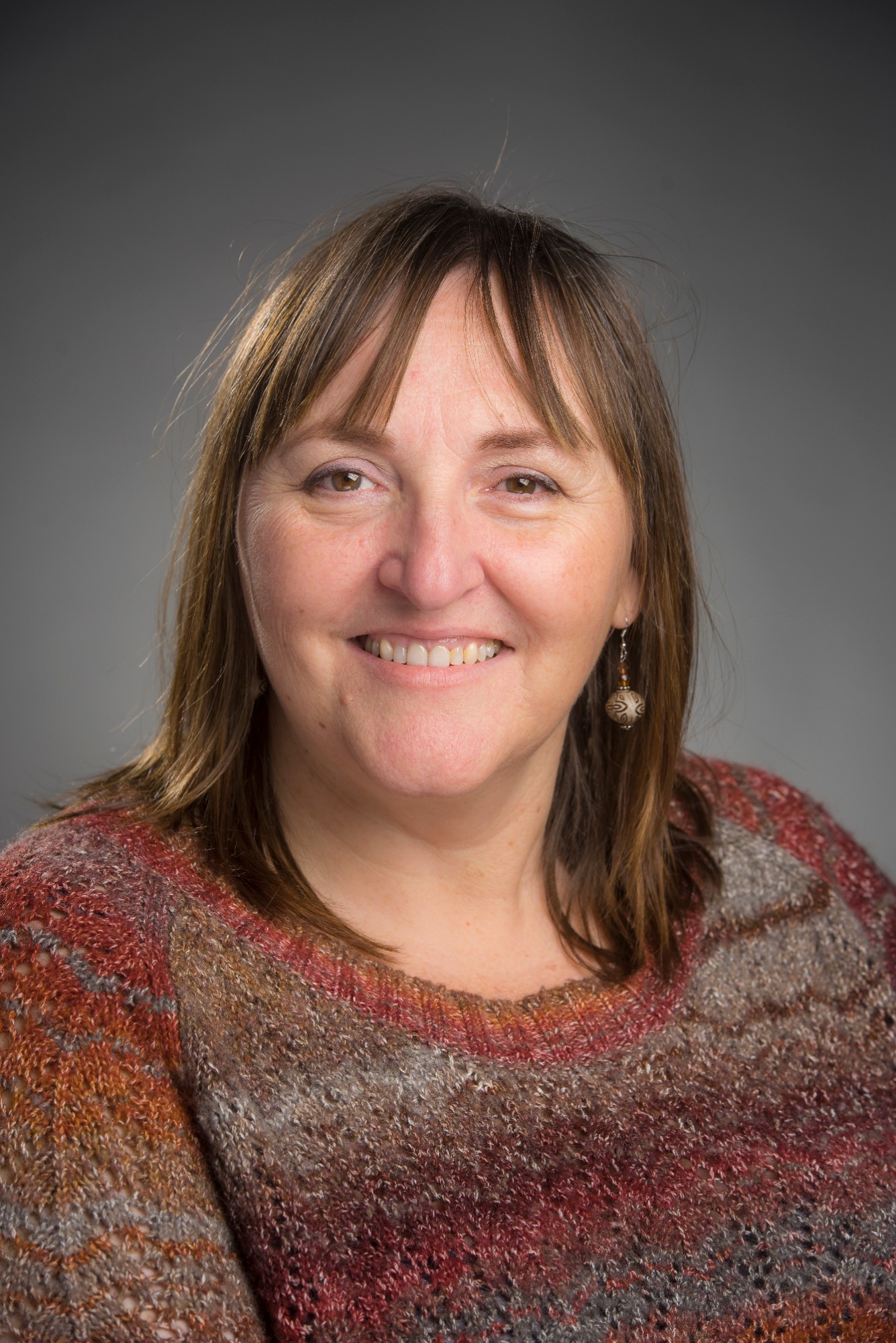

Reducing Late-Night Alcohol Sales Curbed Violent Crimes by 23% Per Year in a Baltimore Neighborhood

Las Vegas Mass Shooting Survivors Continue to Struggle with Major Depression, PTSD

Context Certificate
Global health ., an option within boston university’s master of public health degree, the global health context certificate explores public health behaviors, health systems, and global health policy. specifically, students expand their understanding of the cultural, political, and/or economic causes and consequences of health problems—especially in developing countries..
Master of Public Health Context Certificate Global Health
For admission eligibility, degree requirements, deadlines, and application information, contact the Admissions Office at [email protected] .
This MPH certificate program considers new approaches and delivery systems to improve health behaviors around the world. MPH students are prepared to become researchers and work in global health administration and management.
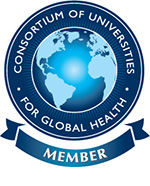
What You Will Learn
Upon graduation, students will be able to:
- Describe health challenges faced at global, national, regional, and community levels, including major causes of morbidity and mortality, and context-specific reasons for geographic variation in population health and wellbeing.
- Analyze a health system and its component elements in order to examine performance, identify strengths and weaknesses, and compare it to health systems in other countries.
- Explain the ways in which culture, social norms and institutions, laws, gender, economic status, access to education and health care, and other factors influence health.
- Conduct a situation analysis across a range of cultural, economic, and health contexts.
- Demonstrate ability to access, summarize, synthesize, analyze, and communicate background information and public health evidence.
Sample Course Titles
- Foundations of Global Health
- Managing Disasters and Complex Humanitarian Emergencies (4)
- Confronting Non-Communicable Diseases in the Developing World
- Global AIDS Epidemic: Social and Economic Determinants, Impact, and Responses
- Global Mental Health
Learn more about the Global Health MPH certificate curriculum .
Sample Practicum
- Brookline Sister City Project (Nicaragua) – Analyzing childhood malnutrition, sexual education, and contraceptive availability
- Calmette Hospial (Cambodia) – Conducting acute kidney injury research
- Lesotho-Boston Health Alliance (Lesotho) – Conducting root cause analysis for home deliveries in Lesotho
- Mildmay (Uganda) – Evaluating the effectiveness of the Wisepill among pregnant and postpartum women
- Intern/Secretariat, People that Deliver Initiative at the UNICEF Supply Division (Denmark)
- World Health Organization (WHO) Regional Office for the Western Pacific (Philippines) – Improving the accessibility of Hepatitis medicine
- World Vision USA (Washington D.C., USA) – Coordinating research efforts related to social services from the perspective of para-social workers in Sub-Saharan Africa
Certificate Director
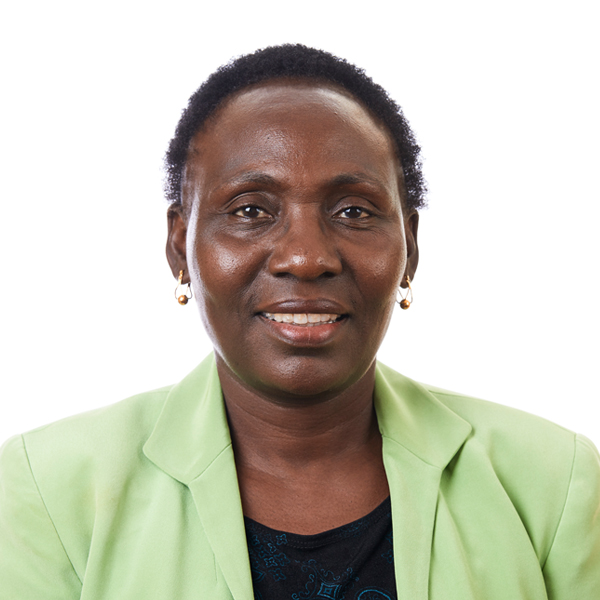
Monica A. Onyango , PhD
Clinical associate professor , global health - boston university school of public health.
Career Services at BUSPH
Learn more about BU’s MPH program
The Master of Public Health program’s Global Health Context Certificate provides students the opportunity to explore global health policy through public health courses on a variety of population health topics. For more information about MPH degree requirements and admissions, request information to learn more .

IMAGES
VIDEO
COMMENTS
The B.A. (Education); Major in Education in Global Contexts is an interdisciplinary program that takes the science and art of teaching and learning and applies these concepts outside of the traditional scholastic environment: in non-profit, government, business, and other professional job markets. You can expect to develop new theoretical ...
Across the four contexts and our lessons learned, there is a clear value added when district and state leaders connect and share practices, policies, and research about global education in K-12 U ...
Education in Global Context takes seriously the transnational migration of commerce, capital and peoples, and the implications of such for education and social structure in global context. Globalization—in the world economy, in patterns of migration, and increasingly in education—affects all of us. The increasingly globalized and knowledge based economy renders the linkages between ...
Global and transnational processes and practices have been observed to influence and impact various aspects of contemporary education within many geographical contexts, and thus the fields of research related to education and globalization are vast: they are not contained simply within one field or subfield, but can be seen to cross ...
Global education encompasses the traditional disciplines in service of helping students understand the world in which they live: sciences, social sciences, and humanities. For example, to understand climate change it is necessary to understand the processes that explain how climate works, a subject of scientific study.
At the Center for Universal Education, this means strengthening our work with local leaders in girls' education: promoting gender-transformative research through the Echidna Global Scholars ...
The World Bank's global education strategy is centered on ensuring learning happens - for everyone, everywhere. ... (FCV) Contexts. The massive and growing global challenge of having so many children living in conflict and violent situations requires a response at the same scale and scope. Our education engagement in the Fragility, Conflict ...
The B.A.(Education); Major in Education in Global Contexts is a 90 credit interdisciplinary program that focuses on understanding the role of education in addressing contemporary and emergent global challenges. Students will take the concepts of teaching and learning outside of the classroom environment, exploring subject areas in sociology, psychology, leadership studies, history, philosophy ...
Global Context; Multicultural Education; Racial Inequality; These keywords were added by machine and not by the authors. This process is experimental and the keywords may be updated as the learning algorithm improves. Download to read the full chapter text. Chapter PDF.
The term "indigenous," when used with education, is generally recognized to refer to the first inhabitants of an area that was later colonized by another, more powerful, group of people who then forced their language and culture on the original inhabitants. In Australia and Canada, the term "Aboriginal" is still used; in Canada ...
The United States spent $34,036 per postsecondary student in 2018, the second-highest amount after Luxembourg and nearly double the OECD average ($17,065). Also, U.S. spending on postsecondary education as a percentage of GDP (2.5 percent) was substantially higher than the OECD average (1.4 percent). These total expenditures include amounts ...
It addresses information and communications technology (ICT) in a global context, reporting on emerging trends and issues in four areas - basic education, technical and vocational education, distance and continuing education and higher education -, as these four areas represent the primary contexts in which ICT is used to support learning ...
ED/EFA/MRT/2015/PI/28 Background paper prepared for the Education for All Global Monitoring Report 2015 Education for All 2000-2015: achievements and challenges The Evidence Base on Early Childhood Care and Education in Global Contexts Hirokazu Yoshikawa and Sarah Kabay 2015 This paper was commissioned by the Education for All Global Monitoring Report as background information to assist in ...
The international conference Educational change in the global context was held. in Prague, August 30th - September 3rd, 2010. The conference was organised by. the Faculty of Education of Charles ...
The global disruption to education caused by the COVD-19 pandemic is without parallel and the effects on learning are severe. The crisis brought education systems across the world to a halt, with school closures affecting more than 1.6 billion learners. While nearly every country in the world offered remote learning opportunities for students ...
by Tom Hanlon / Jan 26, 2021. The power of teacher education is amplified when it is learned in a global context. Through International Programs at the University of Illinois, pre-service teachers gain teacher training and experience abroad so they can teach students how to function in a global context—which is a huge advantage for students ...
the course is to help develop a broad understanding of the global context within which education takes place and how that context affects and is affected by educational policy and practice. Since there is such controversy about the nature of that global context, about the degree of success and failure of on-going education and development efforts,
5. National and global knowledge networks: merging and emerging science, technology, innovation, and education systems. The US education system appears likely to advance along a trajectory characterized by a combination of decentralization and increasing integration into international networks of knowledge production.
The purpose of this article is to reflect upon the Greek state-school teacher's changing role in the 21st century, taking into consideration the global educational context in conjunction with the ...
Dr. Junfeng Yang has been an Assistant Professor with the School of Education in Hangzhou Normal University since 2009. He is the author ofmore than 20 articles in ICT in education. His research interests include ICT in education, smart learning environment, and digital generation of learners. Dr.
The Master of Education (MEd) program in Teaching Languages in Global Contexts offers graduate students from around the world an exciting learning opportunity focused on language education. The program is designed for students from a range of educational backgrounds and is strengthened by the diverse experiences and perspectives each student brings.
Rural Education in a Global Context 1 Global Education Review is a publicatio n of The School of Education at Mercy College, New York. This is an Open Access article distributed under the terms of ...
An option within Boston University's Master of Public Health degree, the Global Health Context Certificate explores public health behaviors, health systems, and global health policy. Specifically, students expand their understanding of the cultural, political, and/or economic causes and consequences of health problems—especially in ...